


















Columbus
Editorial
Chair
Caitlyn Johnson
BoardMembers
Joshua Cartee
Matthew Jalandoni
Janyce Katz
Tami Kamin Meyer
Garth Robotham
Melanie Tobias
Doug Vonderhaar


Editor&Designer
Lexi Foster
Leah Dotson
Advertising
Leslie Klenk
Burgie Media Fusion (614) 554-6294 leslie@burgiemediafusion.com

Aracely



Heather Sowald
Laura Valentino

Columbus
230 West St., Suite 100 Columbus, OH 43215 (614) 221-4112 www.cbalaw.org








Angela M. Vohsing
Columbus
Editorial







Callie




Caitlyn Johnson
Board
Joshua Cartee
Matthew Jalandoni
Janyce Katz
Tami Kamin Meyer
Garth Robotham
Melanie Tobias
Doug Vonderhaar
Lexi Foster
Leah Dotson



ByAracelyTagliaventi
Lawyers hold a unique position in society, serving not just as advocates for clients but as stewards of justice and guardians of the rule of law. With this privilege comes a duty to embody civility and professionalism, qualities that transcend individual political ideologies or personal beliefs. As lawyers, our primary obligation is to provide competent and ethical representation to our clients while advancing justice in our communities. To fulfill this mission effectively,wemustupholdtheprinciplesofcivilityandrespect—bothwithinthe professionandwithinourinteractionswithclients,courtsandopposingcounsel.
Civility is not merely a courtesy; it is a cornerstone of effective advocacy. In a professionoftencharacterizedbyadversarialdynamics,maintainingrespectfor opposing parties and differing viewpoints is essential. When lawyers prioritize professionalismoverpartisanship,wefosteranenvironmentwheredisputesare resolved efficiently and fairly. A lack of civility, on the other hand, undermines trust in the legal system and distracts from the central goal: achieving the bestoutcome.
By approaching legal matters with respect and humility, lawyers also set an exampleforourclientsandthebroadercommunity.Thisbehaviorreinforcesthe notion that the legal process is not a battleground for personal vendettas but a meansofresolvingdisputesandupholdingjustice.
Diversity is a vital strength of the legal profession. A legal system that reflects the rich mosaic of our communities is better equipped to understand and address the multifaceted needs of clients. Lawyers from diverse backgrounds bringuniqueperspectivestoproblem-solvingandadvocacy,whichenhancesthe qualityoflegalrepresentationandstrengthenstheprofession’scapacitytoadapt toanever-changingworld.
Moreover, diversity promotes empathy and understanding. Qualities that are indispensable in fostering civility. By engaging with colleagues, clients and opposing parties from different walks of life, lawyers deepen our ability to navigatecomplexissueswithsensitivityandinsight.This,inturn,benefitsclients andcontributestoalegalsystemthatismorejustandequitable.

The legal profession must be a space where justice takes precedence over ideology. While lawyers, like all individuals, hold personal political views, these viewsmustnotinfluenceourrepresentationofourclientsorourinteractionswith othersintheprofession.Allowingpoliticalbiastocolorlegalpracticeundermines thefoundationalprinciplesoffairnessandimpartiality.
Clients come to lawyers seeking solutions, not political debates. By focusing on their needs and legal rights, lawyers can build trust and credibility. Similarly, colleagues who engage with one another in good faith, irrespective of political differences, contribute to a professional culture that prioritizes unity over division.
Thechallengesfacingthelegalprofessiontodaydemandcollectiveaction.From addressing access to justice to navigating the ethical complexities of emerging technologies, lawyers are most effective when we work together. Civility and professionalism create the conditions for collaboration and innovation, enabling lawyerstotacklethesechallengeswithasharedsenseofpurpose.
By embracing diversity and setting aside divisive rhetoric, the legal profession can serve as a model for unity and integrity. Lawyers — who treat one another with respect, honor clients’ interests and work toward the common good — upholdthehighestidealsoftheprofession.


Civility and professionalism are not optional in the practice of law; they are essential. So, as we enter the new year, let us move forward with a shared commitment to civility, respect and collaboration, ensuring that the practice of lawcontinuestoreflecttheprinciplesoffairnessandintegrityitwasbuiltupon. Indoingso,wenotonlystrengthentheprofessionbutalsocontributetoamore inclusiveandjustsociety.




ByCarlSmallwood
For years leading into the November 2024 election our country was deeply polarized. Many Republicans, Democrats and Independents voiced the belief that democracy was on the ballot this past November. They expressed grave concerns about the future of our country—albeit for different and oftenconflictingreasons—fueledbyangryrhetoricthatpaintedtheiropponents as“theother”andasanexistentialthreattodemocraticinstitutionsandourway oflife.
While it’s still early (Congress has not certified state election results as of this writing),itappearsonepresidentialcandidatewonboththepopularvoteandthe electoralcollegevote,andasinglepartycontrolsthePresidency,theSenateand House (the latter by a narrow margin). Vice President Harris conceded the election; President Biden received former President Trump at the White House; and it appears there will be a peaceful transfer of power. Perhaps one positive outcome of the 2024 election will be a restoration of faith in our electionprocesses.
However, the same concerns regarding immigration, the Middle East conflict, political polarization, racial tension, etc., that fueled division before the election continuetoday—andsomehavebeenmagnified.Thedeepdistrustand,insome cases,fearofwhatwillcomenext—theproposed“fixes”forthesepolicy,political andidentityconcerns—mayincreasepressureontheinstitutionsofcivilsociety.
The election has heightened fear in various immigrant communities, and antiSemiticandIslamophobicincidentsarereportedtobeontherise.InNovember, racist text messages were sent nationwide to some Black college and younger students,LGBTQIA+communitiesandHispanicindividuals.Aneo-Nazimarchin Columbushasleftsomecitizensfeelingtargeted.Condemnationofsuchrhetoric and hateful demonstrations has been swift, multiracial and bipartisan from severalquarters,includinglocalelectedleaders,Ohio’srepublicangovernor,and theWhiteHouse.
Unfortunately,Idon’tbelievetheNovember5electionresolvedconcernsabout our democratic institutions. What is our responsibility and what role, if any, do we lawyers play in seeking to reduce polarization, calm fears and protect democraticinstitutions?
Ourpoliticalandpersonalidentitiesandviewsseemasdiverseandconflictedas ourcountry.Evenso,morefundamentally,weoccupyandupholdtheinstitutions and guardrails that protect our democracy. Although the system is not perfect, lawyersserveaslegislators,advocatesandjudges—sowemakethelaw,argue thelawanddecidethelaw—indemocraticinstitutions.Somelawyersareelected officials; some are unelected leaders, in law enforcement, the educational institutions,thebusinesscommunityandvariousfaithcommunities.Byourwords andactions,wemustearnthetrustofcitizensthatweareaccountable,andthat wewillupholdtheruleoflawtoprotecttheirrights,justlyenforcethelawsand fairlyresolvetheirdisputes.
Unlike other actors, we lawyers are not—and cannot be—silent bystanders to injustice, or to the weakening of the rule of law. The oath each of us took to becomelicensedasanattorneyinOhioprovides:
I, ____________________, hereby (swear or affirm) that I will support the Constitution and the laws of the United States and the Constitution and the laws of Ohio, and I will abide by the Ohio Rules of Professional Conduct.
In my capacity as an attorney and officer of the Court, I will conduct myself with dignity and civility and show respect toward judges, court staff,clients,fellowprofessionals,andallotherpersons.
I will honestly, faithfully, and competently discharge the duties of an attorneyatlaw.(SohelpmeGod.)
Tome,thatoathrequiresthatlawyers“first,donoharm.”Whenlawyersspeak, peoplelisten.So,itisworthreflectinguponwhetherwehave—inconversations, inspeeches,inwritingandbyoursilence—failedtosupporttheprincipleswe’ve sworn to uphold. That oath imposes positive obligations on us as lawyers. We cannot be silent bystanders, failing to confront attacks on the Constitution, the legalsystemandtheinstitutionsthatupholdtheruleoflaw.Wehaveanethical responsibility, based in the Code of Professional Conduct, and grounded in the callingeachofusansweredwhenwetookanoathtosupporttheruleoflaw,as expressedinfederalandstateconstitutionsandtherulesofthecourt.
Second, we should listen. Some of us design systems to listen deeply to communityconcernsandtoaddressconflictsinourcommunities.
Two years ago, we at the Divided Community Project at the Moritz College of Law at The Ohio State University consulted with a bipartisan/cross-partisan group of current and former elected officials, law enforcement,faith,nonprofitandcommunity leaders, historians, political scholars and others to create a guide entitled Speaking Out to Strengthen the Guardrails of Democracy. We brought together Republicans, Democrats and Independents from around the country to examine the lessonshistoryteachesfromothercountries that slid into autocracy in recent decades. Manufactured or exaggerated emergencies thatarouseunnecessaryfears;undermining faithinkeyinstitutions;undercuttingchecks and balances; tolerating or interacting with vigilante groups; attacking ethical professionals and civic groups—these are a fewofthewarningsigns.
Third, and necessary in 2022, but even more so now, bar leaders and legal professionals need to stand up and speak out in a non-partisan, clear and consistentfashion,tocounteranti-democraticforcesfromwithinandoutsidethe United States. The guide was written broadly for lawyers and non-lawyers. Shortly before the 2024 election, we created a one-page (if printed on both sides)IdeaListforLawyersSpeakingOutDuringthe2024Post-ElectionPeriod, availableonDCP’swebsiteathttps://go.osu.edu/dcpbar24.
AsIreflectontheelectionandourdemocracy,itistimeformoreofusto“getin thegame.”Hereareafewideastoconsideraswelookahead:
Commit to participate in/with a bar association activity that educates the public,strengthenstheprofessionorservesthecommunity.
Collaborate with others, including unlikely allies, model respect across difference to provide fact-based information, offer hope and counter antidemocraticactions.
Whenmaskedextremistsspouthate-filledrhetoric,lawenforcementhasthe responsibilitybothtoprotectthedemonstrators’FirstAmendmentrightsand toprotectthecommunitybyenforcinganyviolationoflaw.Butascommunity leadersandmembers,wehaveFirstAmendmentrightsaswelltodenounce suchhatefulandthreateningdisplaysinthestrongestterms.
Be vigilant about misinformation and disinformation, particularly from social media, related to the justice system. Don’t be silent. Speak up when your friends, your neighbors or your community are being misled about the role andindependenceofourjudgesorthejusticesystem.
Everydaywemayberequiredtodecidehowwewillmeetthechallengestothe constitution and the rule of law. I do not yet know the best response to those challenges,butsilentwitnesstoatearingdownofourdemocraticinstitutionsis nottheanswer.Whenaskedforareflectionyearsfromnow,letusmakesurewe lawyers listened, stood up, stood together, spoke out and supported, defended andpreservedourConstitution,ourdemocracyandtheruleoflaw.
Foradditionalresources,checkABATaskForceonAmericanDemocracy.
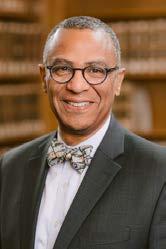
Carl D. Smallwood, Executive Director Divided Community Project, Moritz College of Law, The Ohio State University smallwood.21@osu.edu

YouBelongattheCBA
Jack Bukovnik
Jacob Biscan
Jacob Davis
Jacob Fabina
Jacob Fox
Jacob Kessler
Jacqueline Tapper
Jacques Rodenbach
Jaden Sickmiller
Jadon Robinson
Jaelen Ham
Jaelen Meeker
Jake Silbowitz
James Banko
James McNamara
Jamie Darr
Jeannette Mazur
Jenna Butler
Jeremy Lohr
Jessica Burchinal
Jhanavi Sivakumar
John Umpleby
Jolie Pressburger
Jonas Schaaf
Jordan Akpofure
Jordan Schmidt
Joseph Landusky
Joshua Schoettmer
Julia Holland
Julianne Pacheco
Justin Kennedy
Kaelyn Walther
Kaiden Sharrock
Kat Ellis
Katelyn Oswalt
Kathleen McManus
Kathryn Gerschutz
Kathryn Royal
Kellen Tropeck
Kelli Neff
Kendal Nininger
Olivia
Olivia

Nicole
Nikola
Noah
Olivia
Olivia
Raymond
Samantha Peacock
Samuel Steed
Saqqira Smith
Sara Geiser
Sara Spencer
Savannah Lindsey
Savannah Montgomery
Scott Seward
Seraphina Fecher
Shannon Devlin
Shannon Rainey
Shelby Daniels
Shivani Levine
Silia Dory
Simon Rosenberg
Skyla Caito
Sophia Anthony
Sophia Cramer
Sophia Mitchell
Stephanie Hunter
Stephanie Stinemetz
Sydney Bradley
Sydney Goldberg
Tajah Upshaw
Tara Martin
Tatiana Pavloff
Taya Davis
Taylar Slaughter
Taylor Koors
Taylor Warren
Thomas Witschey
Tiffany Colucci
Tiffany Miller
Timothy Pence
Travis Neel
Trevor Fitzsimmons
Tyler Jenkins
Tyler Morefield
Tyler Rogers Tyler Walker
Valerie Ballinger
Veronica Wilson
Wezley Williams
William Christy
William Todd
Yael Korin
Yam Mitchell
Yanni Patitsas
Yash Ghosh
Zachary Jarrell
Zachary Mullins
Zofishan Zahid
GeorgeJ.Arnold
BelindaS.Barnes
GeraldT.Baynes
JoanneS.Beasy
DavidS.Bloomfield
SheilaWillamowskiBoehner
ThomasJ.Bonasera
SandraE.Booth
JamesH.Bownas
WilliamJ.Browning
StephenR.Buchenroth
BruceH.Burkholder
JoelR.Campbell
LindsayN.Cardwell
JamesC.Carpenter
W.JeffreyCecil
MarkC.Collins
RichardS.Donahey
AnyaLightDuVivier
RobertD.Erney
JohnC.Fergus
StephenC.Fitch
RussellN.Flickinger
AmyFlowers
ScottN.Friedman
PrestonJ.Garvin
NelsonE.Genshaft
PeterJohnGeorgiton
JackG.Gibbs
PaulGiorgianni
DavidA.Goldstein
JamesH.Gordon
DanielRobertGurtner
AllenL.Handlan
MarkHatcher
BarronK.Henley
MichaelJ.Hickey
DouglasE.Hoover
JohnW.Hoppers
CynthiaEllisHvizdos
RichardB.Igo
FrederickM.Isaac
KellyE.Jena
VickiL.Jenkins
JohnS.Jones
MichaelS.Jordan
GlennonJ.Karr
RebeccaC.Kells
RussellA.Kelm
RobertW.Kerpsack
RussellW.Kessler
AllenS.Kinzer
KennethR.Kline
RichardL.Levine
ScottT.Lindsey
DavidK.Lowe
MichaelD.Martz
TimothyJ.McGrath
SamanthaMeng
WalterW.Messenger
DavidP.Meyer
RichardF.Meyer
BonnieD.Michael
AdamC.Miller
ScottR.Mote
StephenA.Moyer
JohnC.Nemeth
WilliamA.Nolan
ChristopherT.O'Shaughnessy
ArenOlson
ThomasP.Pannett
DavidC.Patterson
SamuelA.Peppers
WilliamG.Porter
CharlesC.Postlewaite
GaryPaulPrice
FrankA.Ray
SusanD.Rector
MarkR.Reitz
JamesEvansRoberts,Jr.
RonaldL.Rowland
PhilipP.Ryser
ZacharySchiff
CharlesA.Schneider
RichardW.Schuermann
DanielGeoffreySchumick
DavidM.Scott
PhilipH.Sheridan
KimberlyCalleryShumate
JessicaSkelly
CarlD.Smallwood
FredricL.Smith
JustinSolze
MichaelL.Squillace
A.C.Strip
RobinL.Strohm
IraB.Sully
ThomasM.Taggart
AracelyTagliaventi
J.TroyTerakedis
DavidH.Thomas
MelanieR.Tobias
StevenJ.Umaña
WilliamJohnWahoff
ThomasH.Wallace
CharlesC.Warner
GeoffreyE.Webster
ScottN.Whitlock
BradleyB.Wrightsel
BenjaminL.Zox



By Dianna Parker

The Columbus Bar Association has a strong history of supporting access to justiceinourcommunities.Asacollectivewehavestooduptoaddressinequities in our community and encourage volunteerism among our peers. This summer, we were excited to launch a new initiative—#ColumbusBarCares—a public commitmenttosupportprobonoprogramminginourCentralOhiomarket.

TheCBABoardofGovernorsestablishedthisinitiativeaspartofabroadereffort to connect members with one another outside of our existing practice groups and social events. As a Board of Governors Member and Pro Bono Director for Legal Aid of Southeast and Central Ohio, I was thrilled to see an enthusiasm withintheBoardforidentifyingwaysthatourmemberscancometogetherover sharedpassions,programs,andprojectsthroughvolunteering.Weknowthatwe all contribute separately, but why not show how many of us are engaged, and whynotstrengthenthoseconnectionsamongourmembersintheprocess?
In August, eleven #ColumbusBarCares members volunteered at the annual Franklin County Driver’s License Reinstatement Clinic. More than 500 people received help navigating the complicated and burdensome path to reinstating theirlicensesduringtheevent—coordinatedbyMunicipalCourtClerkLoriTyack and staffed by clerks, court representatives, judges and magistrates, Child Support Enforcement Agency, Franklin County Job and Family Services, insurance providers, and the Ohio BMV. Lawyers and other professionals receivedfreeCLEcreditandtrainingfromLegalAid.Theyspentthreetoseven hours at the downtown location of the Columbus Metropolitan Library, meeting withclients,diagnosingtheirlicenserecord,andchartingoutthenecessarynext steps.Thatday,100individualslefttheclinic“valid”—thebestoutcomeyetata FranklinCountyreinstatementclinic.
A regular attendee at these events, CBA Board Member and Municipal Court Judge Jarrod Skinnerseesfirsthandtheimpactaneventofthis kindcanhaveonthecommunityheservesevery day. “So many people are unfamiliar with the requirements to obtain their licenses, and the systemcanbeintimidating.Havinglawyerscome together to help ease that stress and point attendeesintherightdirectioncanhelpsomeone get back on the road legally so that they can supportthemselvesandtheirfamilies.”

Last fall, eight #ColumbusBarCares members again signed on to support Legal AidbyvolunteeringfortheirexpungementeventatOhioMeansJobs,wherethe FranklinCountyMunicipalCourtSelfHelpCenter,MunicipalandCommonPleas court and clerk representatives worked together to help participants expunge criminal records. This event, which also featured a job and resource fair for attendees, engaged more than 50 volunteers and resulted in more than 300 peoplereceivingday-ofassistance,alongwithanother400applicantsreceiving adviceorformsviaLegalAidandtheSelfHelpCenterbeforeandaftertheclinic.
CBA Board of Governors member Amy Flowers was happy to volunteer at the expungement clinic, her “favorite pro bono work” and found the event easy to plug into and well-run. “With Legal Aid and the Self HelpCenter’strainingandsupport,lawyers,paralegals, law students and undergraduates can all contribute meaningfully with minimal burden or preparation time. It’s a great way for someone with a busy schedule to lend their skills without getting overwhelmed with the commitment,”shesaid.

Lawyers and other professionals from the CBA and CBF staff have also stepped up to join the #ColumbusBarCares initiative. Chief of Strategy & Growth Dawn Hays helped clients at the Driver’s License clinic and after volunteering, reflected “It’s been an incredible honor to be able to support this importantcommunityinitiative,andI’msoproudtobe amemberofthe#ColumbusBarCaresteam!”
There has never been a question that we are the best bar in the state, and #ColumbusBarCaresisjustanotherexampleofhowwesupportoneanotherand our community. Our members represent the best of our profession by taking seriouslytheexpectationthatalllawyerscontributetoaccesstojusticeforthose who cannot afford legal representation. If you’d like to learn more about how you, your firm, or your practice group can get involved, please reach out to my teamatprobono@lasco.org.

Dianna Parker, Director of Pro Bono & Community Engagement Legal Aid of Southeast and Central Ohio (LASCO) dparker@columbuslegalaid.org

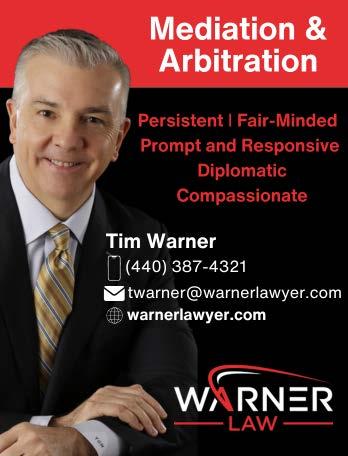


ByCeCeHarris
As the newly appointed Director of Development for the Columbus Bar Foundation,Iamhonoredtoworkalongsideadedicatedteamthatsupportsand elevates the legal community in Central Ohio. I bring with me 27 years of experience in social services, where I’ve been dedicated to serving and advocating for those in need. This long tenure has instilled in me a deep appreciation for the importance of justice, community support and the power of collaboration—values that I am eager to carry into my new role with theFoundation.
In this new role, I have the privilege of leading efforts that amplify the Foundation's mission, work towards justice and support programs that provide accesstolegalservicesforall.It’samissionI’mpassionateabout,andonethatis criticaltoensuringwemaintainafairandequitablelegalsystem.
The Columbus Bar Foundation (CBF) is the charitable arm of the Columbus Bar Association (CBA), founded in 1869, and was established to support the legal profession and promote justice for all. The Foundation works with the Central Ohio legal community to address critical needs, provide access to legal resources and support a variety of initiatives aimed at enhancing the public’s understandingofthelaw.

The Foundation plays a vital role in helping local underserved communities by funding and promoting services like pro bono legal work, scholarships for law students, and initiatives that increase diversity within the legal field. Through a combination of fundraising efforts and community outreach, the CBF supports programs that bring legal services to those who might otherwise be without, particularlyincasesinvolvingeconomichardship,civilrightsandsocialjustice.
Overtheyears,theColumbusBarFoundationhasmadearemarkableimpacton thelocallegallandscape.SomekeyhighlightsoftheFoundation’sworkinclude:
Supporting Pro Bono Legal Services: TheFoundationfinancestheprovision of free legal services to thousands of individuals in Central Ohio and helps peopleinneedoflegalassistancethatareunabletoaffordit.
Law School Scholarships: The Foundation funds scholarships to law students from underrepresented backgrounds and helps ensure the legal fieldremainsdiverseandaccessibletoalltalentedindividuals,regardlessof theirfinancialsituation.
Community Outreach & Education: The Foundation invests in several initiatives designed to educate the public about the law, including programs that assist youth in learning about legal rights and responsibilities and programsthatpromoteaccesstojusticeforminoritycommunities.
Advocacy for Social Justice: The Foundation works to ensure that social justice is at the forefront of the community’s legal efforts by advocating for fair treatment and equal rights for all regardless of their economic status orbackground.
AsIreflectonrecenteventshostedbytheColumbusBarFoundation,Iamproud towitnesstheunwaveringcommitmentofourlegalprofessionalsandcommunity partners in supporting the Foundation’s efforts. These events are not just opportunities to raise funds, but to unite our community around shared values andacommongoal—justiceforall.


Annual Meeting and 50 Year Luncheon: TheFoundation'sAnnualMeetingis oneofthemostanticipatedeventsoftheyear,anditwasanhonortoattend this year. It serves as a platform to recognize outstanding individuals and organizationsthathavemadesignificantcontributionstothelegalcommunity and social justice efforts. The event is not just about celebrating achievementsbutaboutreaffirmingourcommitmenttojustice,inclusionand community empowerment. We also recognize those in the legal profession thathavecelebrated50yearsofpractice.
Annual Civics Education Event: This year the CBF hosted its third annual Civics Education Event. a special sit-down dinner featuring a guest speaker who talks with local high school government and history teachers and students.Thiseventisintendedtorecognizeandencouragestrongteaching andtoinspirestudentstolearnaboutcivicsandhistoryinthesetimeswhen toomanydiscussionsbecomepolarized.
These events are a testament to the collaborative spirit of the Columbus Bar Foundation. They underscore how integral the support of the community is in helping us achieve our mission. We are proud to see so many individuals and organizationscometogethertohelpexpandaccesstojusticeandbuildabetter futureforall.
Thank you to all who have worked tirelessly to support the Foundation and its missionforthepastyear.Welookforwardtostartingthenewyearwithyouand inviteyoutojoinusinour2025servicesandevents.Formoreinformationabout theColumbusBarFoundationandhowtogetinvolved,contactCeCeHarris.

Director


ByJillSnitcher
Forover70years,centralOhioanshavelookedtotheColumbusBarAssociation forguidanceonselectingtherightlawyer. Wereceivehundredsofinquiriesper week,inperson,onlineorbyphone. IthasbeenahallmarkoftheCBAtotreat everyinquirywithrespect,careandattention,whethersomeoneneedsareferral toalawyer,socialserviceagencyorothercommunityresource.
Thenumberofonlineresourcesforfindingalawyercanbeoverwhelming. What was once an easy way to find a lawyer has become complicated by infinite lawyeradvertisingsitesthatareexpensiveandcanleaveauserfrustrated.
We built ColumbusLawyers.com with both consumers and lawyers in mind. Columbus Bar members can build their own profiles, complete with photos, videos, and links to websites and social media profiles. This additional information enhances the user’s ability to make an informed decision about selecting an attorney before picking up the phone— ensuring members are receivingbetterqualitycalls.
Users can easily search for attorneys and firms by practice area, location, language and name to find the right lawyerfortheirspecificlegalneeds. ColumbusLawyers.com is an annual subscription that only member attorneys can subscribe to. For one flat fee, members can select —and be found by—multiple practice areas, languagesandlicenses.
1.MembersOnly:
At the Columbus Bar Association, we believe our members are the best and brightest in the community. Members avail themselves of educational opportunities that fuel ongoing growth and development; connect with other lawyers to create a supportive network that enhancessuccess;andmakecontributionsbeyondthecourtroomthat improve the greater community. All of this sets members apart from competition, and that’s one of the many factors that set ColumbusLawyers.com apart from other online search engines—the credibilityCBAbrings.
2.RobustProfiles:
Attorney profiles have a modern look and include personalized information such as practice areas, licensure, photos, videos, maps and links to social media channels that can improve cross-marketing. Consumerslovephotos,andmembersgetafreeprofessionalportrait through the CBA Media Studio. We encourage members to take advantageofthesebenefitstoenhancetheirprofilesandvisibility.
3.Accessibility:
ColumbusLawyers.com can be accessed from anywhere 24/7, whether in the office or on the go. Viewable on phones, tablets and computers, ColumbusLawyers.com provides crucial information for viewerstoinstantlyconnectwithlawyers.
4.User-FriendlyInterface:
ColumbusLawyers.com is designed to be user-friendly: intuitive search bars, clear organization and simple navigation make it easier foruserstoquicklyandefficientlyfindwhattheyneed.
5.ProvenEngagement:
Onemonthafterthesitewentlive,thesitehad6,031viewswith1,190 active users exploring the site for an average of 2 minutes and 30 seconds,activelysearchingforattorneys.
ColumbusLawyers.com is set up in a way that increases organic marketingwhichenhancesmembers’visibilitytoconnectwithclients. Comparison pricing of similar service providers quote an average of $3,000ayearperlistingand$6,000-$18,000ayearfortheincreased organic marketing. We are excited to bring these benefits to our members for a fraction of the cost. The CBA also invests in digital marketing to promote ColumbusLawyers.com, making member’s investmentsgofurther,soleavethemarketingtousandsubscribeto ColumbusLawyers.comforjust$300peryear.
ColumbusLawyers.comwascreatedtomeettheneedsofattorney-membersand thepublicalikewithavisiontowardthefuture.Asneedsandtechnologychange inthelegalfield,ColumbusLawyers.comwillalsoevolvetocontinuallymeetthe needs of attorneys and the public, so we invite you to join ColumbusLawyers.comandstaytunedforadditionalbenefitsinthefuture.

Snitcher, Executive Director


By Brandi Staley-Sladek
Network! It’s the gold standard of advice given to law students and young lawyers.Thekeytosuccess.Theonethingyoucandotosetyourselfapartand (ifyoudoitright)getahead.
Is that true? What does “networking” even mean? Do you need it? And, if networkingissoimportant, how do you make time when you are tired,working late or taking care of loved ones, friends, pets and yourself? Or, what if you justdon’tfeellikeit?
My (unsolicited) advice: Give networking a mental rebrand. Reframe how you think about networking, cut yourself some slack, and, most importantly, use networkingasanopportunitytoconnectwithpeopleinyourcommunity.


If you are in law school, you are reading hundreds of pages, studying and engaging in various school sanctioned activities every day in addition to living your life. Then you graduate and enter the legal profession, where you are spending more than eight hours a day learning to practice law by billing hours, heading to the courthouse and meeting clients. At the end of a long day, it’s difficulttogetintherightframeofmindtoheadtoabarassociationeventand meet new people. Even for an extrovert, this can be daunting at best and exhaustingatworst.Ourtimeisatapremium,andinthepost-covidlandscape, weareallmorethoughtfulabouthowandwherewespendourtime.
Nevertheless, I am one more person who is here to tell you that it’s important to find support and maintain involvement in your legal community. Here are a few tips and tricks to rebrand and reframe networking to make it even 1% moreenjoyable.
Stoptreatingnetworkingasajob. Thisisthebiggestreframeandmaybethe hardest.Networkingisawaytobuildcommunitywithotherlawstudentsand legal professionals. We all network every single day when we make a connection with the barista at our regular coffee shop, the security guard at the courthouse or the staff at your local bar association. Getting to know peopleonahumanlevelis networking. Whenyoutreatnetworkingasajob,it becomes transactional. It becomes about what you can gain from a meeting instead of what you can learn or offer. When you treat networking as an opportunitytobecuriousaboutotherpeople,itbecomesmoregenuine,more casualandlessstressful.

Networking is a skill. Likemostthingsinthelegalprofession,networkingisa skillthatyoucandevelopandhoneoverthecourseofyourcareer.Don’tfeel discouragedwhenitfeelsparticularlyexhaustingordifficult,especiallyaftera longday.Itgetseasierovertime,and(attheriskofsoundingcliché)practice makesperfect.

Thereareafeweasywaystogaincomfort and confidence, and it starts with authenticity. Yes, the essence of this advice is to be yourself. When you are yourself, even if that is awkward, selfconscious or (often in my case) grumpy fromhunger,it’smucheasiertoknowwhat settings, groups and interactions will enable you to thrive. If you feel overwhelmed in large groups, seek out small group settings where you can talk to people one-on-one. If you feel awkward, try attending an event where there is an activity, like a social or wellness event whereyouhavesomethingelsetofocuson to make you feel more comfortable. Workingwithinyourlimitscanallowyouto become more comfortable with the idea of attending events and meeting new people. And the longer you are in practice, the more people you will meet, meaning the morefacesyouwillrecognizethenexttime youwalkintoaroom.
Give yourself unconditional permission to say “No.” If you are a current or recoveringoverachiever,itmaybedifficulttohearthatyoudon’thavetodo orbeeverything,especiallyatthestartofyourcareer.Ifyouwanttobemore involved in the legal community, you can do so and still say “no” sometimes. Youdonotneedtojoineveryorganization.Youdonotneedtoattendevery eventfortheorganizationsyoujoin.Youdonotneedtostayfortheduration of every event you attend. Find the organizations that speak to you and provide you with the best opportunities to network on your terms. And give yourselfunconditionalpermissiontoturndownopportunitiesyoucan’tcommit to.Successmeanslongevity,andburnoutisreal.
Balance discipline with compassion. At the endoftheday,sometimesyouneedtohave a little discipline. If being part of the legal community is something you want, you mighthavetoforceyourselftoparticipateor attend an event. There have been many evenings where I would rather reunite with my couch than drive to the bar association and chat with friends and strangers after a long day. I employ a full-proof strategy that has greatly helped me on those difficult days.Itellmyselfthat I am required to walk throughthedoor,andafterthat,Icanleave wheneverIwant. Thatcouldbein5minutes (thishashappened),or30minutes(thishas alsohappened),orthedurationoftheevent (believe it or not, this has happened too). Disciplineforcesmetomaketheeffort,and compassion gives me a complete and totalout.

Networkingisacommitment,butit’salsoaskillthatyoulearnandimprovewith practiceandtime.Ichallengeyoutogivenetworkingarebrandsoyoucanstop dreadingitandstartenjoyingthetimespentwithfriendsandcolleagues.Reframe networking as a meaningful opportunity to engage with your professional peers andyourlegalcommunity.Andknowtherewillbetimeswhenyoujustdon’thave itinyou.That’sokay.TheBarwillstillbehereforyouwhenyouareready.
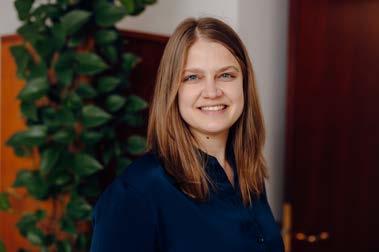

By Judge Zach Gwin
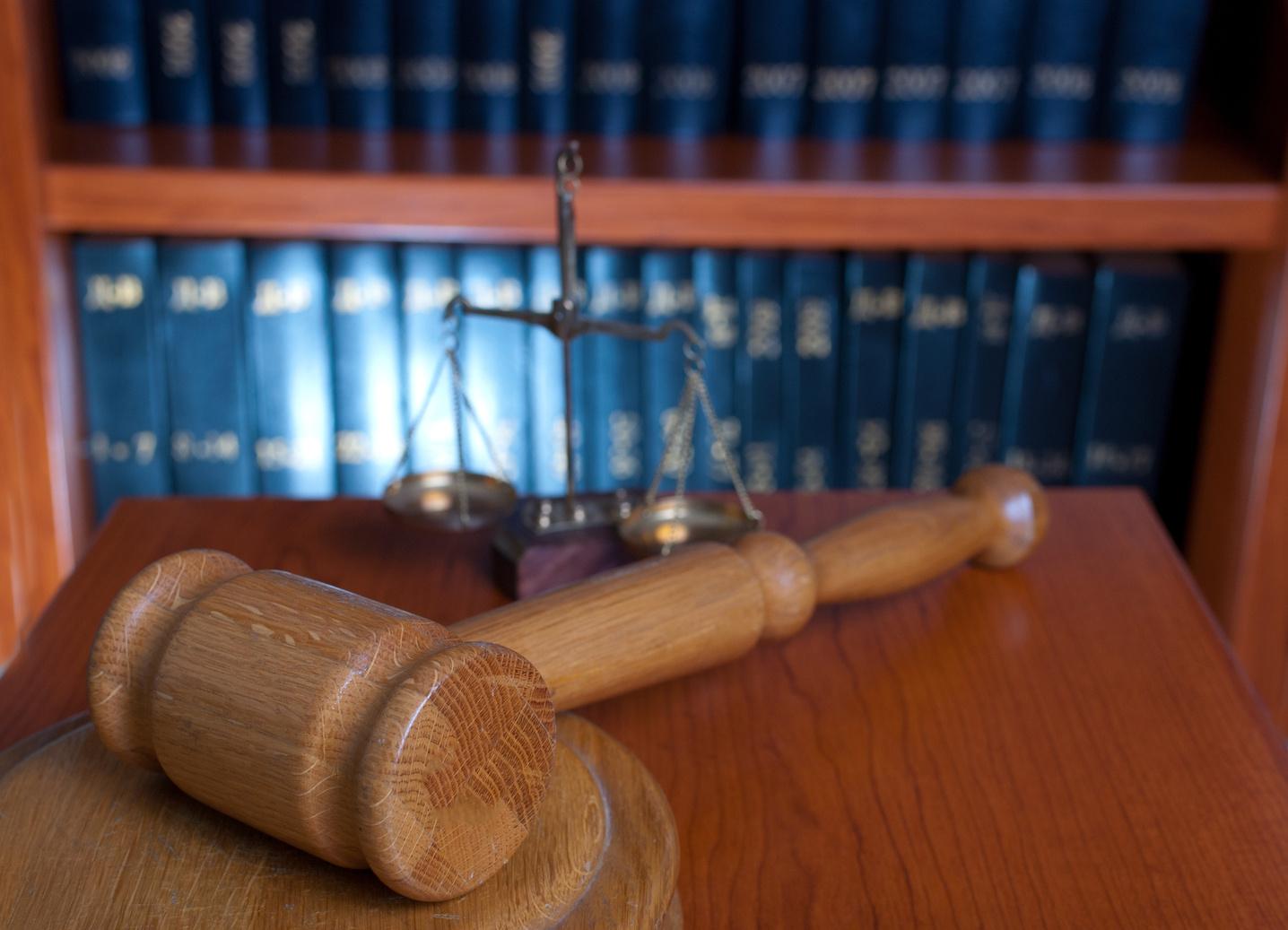
In January of 2024, I was fortunate to fulfill a long-held goal and became the newest judge on the Franklin County Municipal Court. The transition from lawyer to judge carried with it a few expected changes, such as attending judicial training, getting sized for a robe and wrapping up cases from my time with the Columbus City Attorney’s Office, but this change also brought a few unexpected challenges andlessons.
As new judges, we are fortunate to go through “New Judge School” at the Supreme Court of Ohio where we meet with new judges from across the state and hear from experienced judges to help prepare us for our new roles. Our seminarsfocusedonwaystomaintainimpartiality,actempatheticallyandfollow judicialcanons.Contrarytopopularbelief,thereisnosecretjudge’shandshake training,althoughmaybethatissavedforourbrothersandsistersontheCourts of Appeals. Much like law school, when asked how we should decide a trial practice hypothetical, we were reminded the answer often is “it depends” and that the abuse of discretion standard is high but that the voters (or governor) havegrantedusthediscretiontomakethosecalls.
As one would expect, all of the new judges are excited to begin their new position, or at a minimum are glad to be done campaigning. Upon meeting with colleagues from other parts of the state, I was struck by the differences in our roles.Uptothatpoint,mylegalexperiencewasmostlylimitedtolargecounties. Itwasespeciallyinterestingtomeetwithjudgesfromlesspopulouspartsofthe state where resources are limited, and they are the only judicial official in their entirecountyatthemunicipallevel.Astheonlyjudgeintown,thesejudgeswear a number of administrative hats and also feel the public scrutiny much more intensely than those of us in larger counties, where we are one of many judges andpublicofficialswhointeractwiththepublic.
I knew when I ran for judge that the Franklin County Municipal Court has the largest caseload in the entire state, but what I didn’t realize was the complex system that makes the Courthouse run. When I received an email from Court Administration that they were looking to schedule my judicial orientation, I assumed I would simply be meeting with a few of the staff members and completing my HR paperwork. When I received my orientation schedule, I was surprisedtoseeIwasdueforsixfulldaysofrapid-firemeetingswithmorethan twentydifferentdepartmentheads.IlearnedthattheMunicipalCourthousehas more than 250 employees ranging from probation staff to secretaries, security guards, magistrates, the Self Help Center and service bailiffs. This also doesn’t includeClerkofCourtsLoriTyack’sOffice,whichworksalongsidetheCourtand employsanother150staff.IcameawayrealizingthatIwouldinfactbejoininga robustandprofessionaladministrationhandlinghundredsofresponsibilities.The MunicipalCourthouseisfortunatetohaveanexcellentgroupofemployeeswho oversee the day-to-day operations of the Court, which sees more than one millionvisitorsperyear.
ThetransitionfromtheCityAttorney’sOfficetojudgealsobroughtachangeof responsibilitiesindecision-making.Imovedfromanattorneymakingpleaoffers or proposing settlements on behalf of the government to the neutral arbiter tasked with listening to all sides and coming to a just result. This sometimes meansrulingagainstformercolleaguesorfriendsinthedefenseandcivilbar.All judgeswilllikelytellyouthatthetransitionfromadvocatetoneutralumpirecan beachallenge.Whilethisobviouslyinvolvestakingoffthehatofaprosecutoror defense attorney, it has also meant trying to be aware of the biases or preferencesthateachofuscarrywhenwewalkintothecourtroom.Ifoundthis wasbestaccomplishedbytryingtoputmyselfintheshoesofeveryindividualin the courtroom, including each attorney, the defendant and the prosecuting witness. For every participant, there is something at stake, whether it be their freedom, financial interest or reputation, and as a judge I try to remind myself howmuchthiscanweighontheparties.
Priortotakingthebench,Iknewthatajudge’sreputation,likethatofapracticing attorney, becomes known quickly, and it would be important to make a good impression early. While at one judicial screening, I was asked what current or formerjudgeIhopedtoemulate.IgavealistofjudgesthatIadmiredandwhoI believed were fair, knowledgeable, and respected in the community. But at the endoftheday,eachjudgemustfindtheirownstyle.Inmycase,Ihavetriedto take what I think are some of the best attributes of those judges I admire and blend them with my own personality. I was already incredibly fortunate in that I had the chance to bring on an experienced and beloved bailiff who gave practitioners confidence in the efficiency of the courtroom. As other judges know,agreatbailiffcanmakeorbreakacourtroom.Still,tryingtobuildagood reputation goes beyond hiring decisions. Would the parties think that I carefully consideredtheirposition?WouldIlooksufficiently“judicial”sittingonthebench before a crowded courtroom? As a former prosecutor, would I give the impression of being biased as to one side or the other? All of these questions swirled around my head for the first months and occasionally resurface now when making difficult decisions, but as another judge told me, “When you are makingfiftydecisionsaday,youhavetoknowwhenandwhennottodwellon things.” A bit of imposter syndrome is unavoidable after any amount of time practicinglawandmustbetakeninstride.

Another important lesson that I have tried to keep in mind is to try and remain humble each and every day. Prior to beginning our term, we were warned not to fall victim to “black robe syndrome” or the feeling of infallibility that some judges experience while sitting above everyone and being referred to as “your honor.” While not being glib about our role, our positions aretemporary,andweshouldtrytobe goodkeepersoftheresponsibilitiesthat are given to us by our community for theshorttimethatwesitonthebench.
Whether it be presiding over a jury trial, taking a plea or conducting a wedding ceremony,Iamconstantlyremindedwhatanhonorandprivilegeitistoservethe people of Franklin County. I am thankful to have the chance to make a positive impact on our community and will remain dedicated to serving with fairness and respectforall.

Judge Zach Gwin
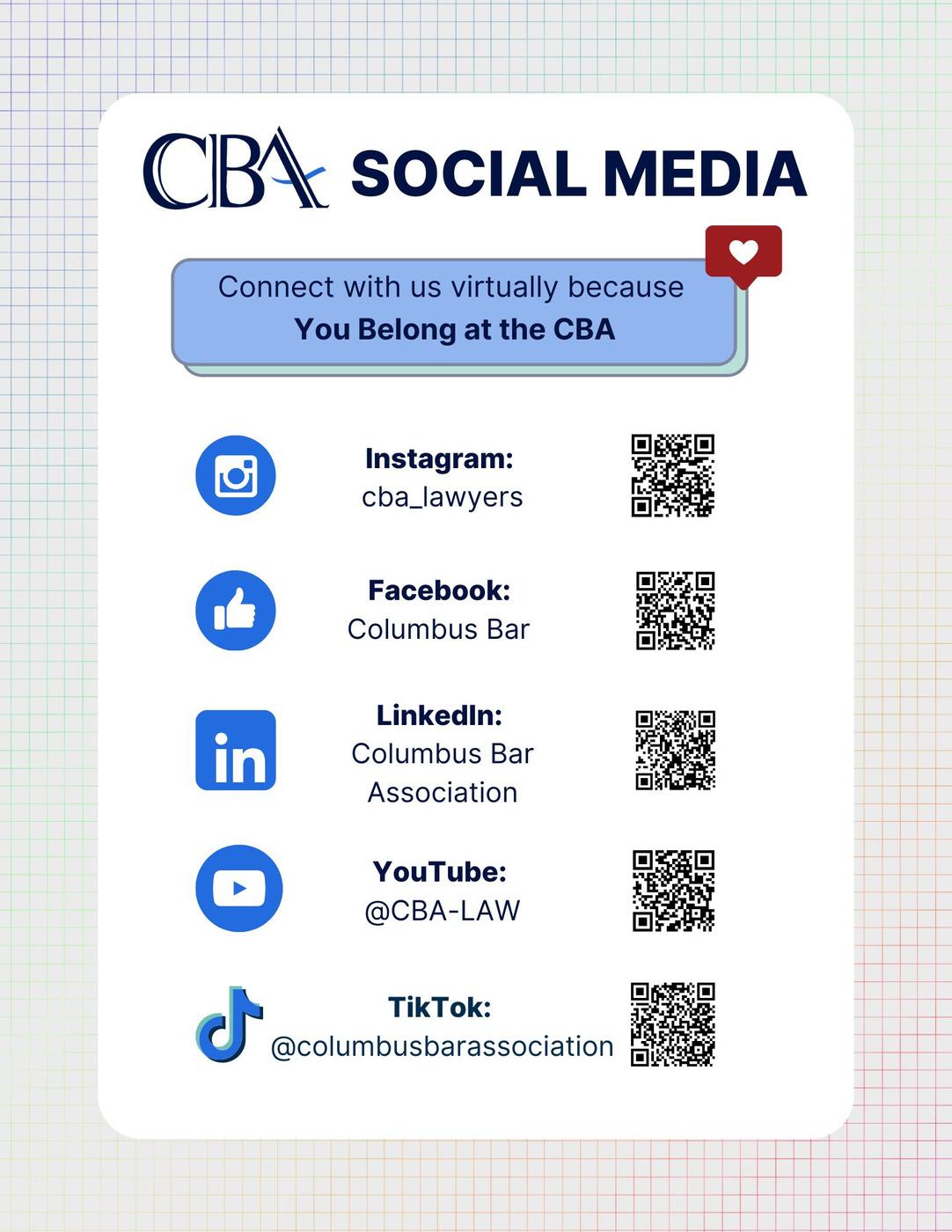
By Heather G. Sowald


Josh Cartee’s interest in music was sparked by learning to play on his grandmother’s upright piano and his sister’s 32-key Fisher Price keyboard, which then led to years of musical instruction,playingandcomposing.
Josh grew up in Chillicothe, Ohio, a citystillimportantinhislife,wherehe nurtured his interest in music and the arts. He was involved in the high school chorus, show choir, jazz band and the theater department’s musical productions. Today, he continues to serve as pianist and choral accompanist (and Treasurer) at OrchardHillUnitedChurchofChristin Chillicothe,Ohio.
Josh originally considered a career in music and was accepted into a conservatory for piano performance, but,ultimately,hesays,hedecidedto keepmusicasahobbyandseekouta differentcareerpath. Joshcontinued to act and use his bass singing voice for the Chillicothe Civic Theatre and forvariousmusicalswhileheattended Oberlin College. Some of his roles included Harold Hill in “The Music Man,”theNarratorin“IntotheWoods” and the Prince in “Once Upon a Mattress.”
While at college, Josh met his wife, LaurenMuscott,andtheylatermoved toColumbuswhileheattendedlaw
school at The Ohio State University Moritz College of Law. During his second year of law school, he and Lauren were married, and Josh successfully campaigned for and won aseatonChillicothe’sCityCouncil. In his last year of law school, Josh commuted back and forth from Chillicothe, balancing law school classes, Law Journal and City Council commitments.
After graduating law school in 2016, Josh took a job with the Attorney General’s Office and later joined Dinsmore & Shohl, LLP. While at Dinsmore he also served as the Solicitor for the Village of Commercial Point. He is now with the Columbus CityAttorney’sOffice,witha



concentration in municipal law, serving as the general counsel for various city departments, boards and commissions.

While he has not had any roles in musicalssincecollege,Joshhasbeen veryinvolvedwithastart-upnomadic theater group in Orlando, Florida called the Whiskey Theatre Factory, Inc. Thetroupewasstartedinpartin 2021 by a playwright friend of his, Bethany Dickens. Josh wrote incidental music for Bethany’s play, “TheConsciousness,”whichwonBest Play at the Tampa Bay Theatre Festivalin2019. WhiskeyTheatre

Factory began with virtual plays during the pandemic and now stages them at various venues in Central Florida.Joshiscurrentlyservingasits BoardChairandPresident.
Josh says that he has been composing music since he was a teenager and shortly after he began learning about music theory and composition. Hestartswithtryingout various melodic and chord progressions to see how they resonatewithhimemotionally,andhe then builds upon those themes with additional musical ideas and sequences until he feels the compositionhascommunicatedwhat
he wants it to say. His compositions have included waltzes, small orchestra compositions, instrumental duets and now full-blown musicals, whichcontain12-15songsormorefor eachstory.
Josh has drafted a musical about Ripley, Ohio and the Underground Railroad there, but he ruefully admits it is currently marinating on the shelf for now. Currently, he is writing another musical—including its script, staging and production notes on costumes and set design—with the working title of “Pitch Clock.” He describes this musical as being about baseball,nostalgiaand,strangely
(he concedes), quantum mechanics. He hopes one day to see his compositions performed on stage for the enjoyment of others in his community.
In his spare time, when he is not composingmusic,Joshenjoysserving ontheCBA’sEditorialBoard,traveling with his wife, taking hikes and reading. Josh plans to continue composing, which he says helps him to better understand and express himself, through both the lyrics and themusic,andtorelaxfromtheoften highdemandsofthelegalprofession.




















ByLauraValentino

In her memoir Girl Walks Out of a Bar, attorney Lisa F. Smith shares adeeplypersonalandrawaccount of her struggles with alcohol and cocaine addiction. Smith’s story is not just about addiction; it’s about the fear of judgment and stigma thatmanyprofessionals,especially in high-pressure fields like law, face when confronting substance use disorders (SUD) and mental health issues. Her journey from secrecy and shame to recovery and openness serves as a powerful testament to the importance of support and understandingintheworkplace.
Smith’s descent into addiction was marked by a profound fear of discovery. As her life spiraled out of control, she recognized the need for professional help. However, the thought of her law firmdiscoveringherstrugglesfilled herwithdread.“AsIpassedoffmy immediate projects for coworkers to handle, I thanked God for the privacy laws that prevented the firmfromquestioningmeaboutmy health,” Smith recalls. The fear of being seen as “weak, defective, anduntrustworthy”overshadowed
her need for help and reflected a common concern among legalprofessionals.
This fear is not unfounded. The legal profession is known for its rigorous demands and high expectations, where any sign of vulnerabilitycanbeperceivedasa career-ending flaw. Smith’s reluctance to reveal her addiction was rooted in the stigma associated with substance use disorders within the legal community.“Itwasn’tjustbecause I was ashamed, which I was,” Smith explains, “it was also because of the stigma attached to substance abuse by lawyers. If they found out, overnight I’d go frombeingviewedashardworking and smart to weak, defective, anduntrustworthy.”
personal failing. “You told me that you spend a significant amount of time at work. Don’t you think it will be better if the people you’re with every day know that you’re in the earliest stages of recovery? There’snothingtobeashamedof,” the therapist advised. However, Smith’sresponsereflectstheharsh realitymanyinherprofessionface: “Yea, I get that, but no. It’s not OK in a big law firm. We talk about alcoholics behind their backs. I knowthatsoundsbad,butnobody cares that it’s a disease. It’s considered a weakness, and they always find a way to cut the weak from the herd. I’ll come clean anywherebutatwork.”
During her recovery, Smith’s therapist suggested that she consider being open about her struggles at work, emphasizing thataddictionisadisease,nota
But, years later, after achieving sobriety and beginning to write publicly about her addiction and recovery, Smith shared her story with her colleagues and realized that she had a strong support system in the legal field. “I trusted and respected them. I didn’t want them to learn my story on the Internet. It was difficult to share, but the response I received was overwhelmingly positive. I am lucky to be in a compassionate and supportive environment,” shereflects.
become more compassionate and supportive. There has been a growing recognition of the importance of mental health and well-being within the legal profession. Initiatives aimed at reducing stigma and promoting wellness are becoming more prevalent, signaling a positive shift in the industry, but we can always domoretohelpreducethestigma.
Smith’s experience highlights the importance of workplace culture in supporting individuals who are struggling with SUD or mental healthissues.Thelegalprofession, likemanyothers,isevolvingto
As the Clinical Director at the Ohio Lawyers Assistance Program (OLAP), I have worked with many judges, magistrates and lawyers who share Smith’s fears. They are often afraid that their employers will find out about their SUD or mental health issues, fearing the professional consequences that mightfollow.
OLAP is a resource that supports attorneys,judgesandlawstudents dealing with these issues. OLAP is 100% confidential, so you can ensure that no one else will know thatyouaskedforhelp.Ifweever get calls about certain OLAP clients, we tell them, “We cannot confirm or deny knowing that individual.” This confidentiality is alsotruefortherapists.
However, one of the most critical messagesIconveytoOLAPclients is that recovery is possible, and it can be achieved privately. The mostimportantthingtofocusonis one’s recovery, not the potential judgments of others. There are numerous resources available that can help individuals recover while maintaining their privacy. For instance, therapists who offer weekend appointments or telehealth services, or sessions in another county provide a discreet way to seek help without the fear of being discovered by colleagues oremployers.
Recovery is not a one-size-fits-all journey, and it’s crucial for each person to find the path that works bestforthem.Whetherthroughinperson counseling, telehealth or other forms of therapy, the key is to take that first step toward recovery. It’s important to remember that seeking help is not a sign of weakness; it’s a sign of strength and self-awareness. By prioritizing recovery, individuals can reclaim their lives and careers and prove they are more than theirstruggles.
Substance use disorder is a disease, not a moral failing, and it should be treated as such. By fostering an environment of understanding and support, the legal community can begin to break down the barriers that prevent so many from seeking help. Colleagues and employers can play a crucial role in this by encouraging openness and creatingaculturewhereit’ssafeto admitwhenoneisstruggling.
The path to recovery may be daunting, but it is not insurmountable. With the right support, legal professionals can navigate this challenging time while protecting their privacy and preserving their careers. Recovery isnotadestination;it’sajourney— a journey that is worth every step. AndasmoreindividualslikeLisaF. Smith share their stories, the legal profession will continue to evolve, becoming a place where recovery isnotjustpossiblebutembraced.
Ultimately, Lisa F. Smith’s memoir is not just a story of addiction; it’s a story of hope, resilience and the power of support. Her journey reminds us that recovery is not just about getting better—it’s about reclaiming your life and proving that you are more than your struggles. By prioritizing recovery, seeking help and challenging the stigma within the legalcommunity,professionalscan overcome these challenges and emergestrongerontheotherside.

Laura Valentino, Clinical Director
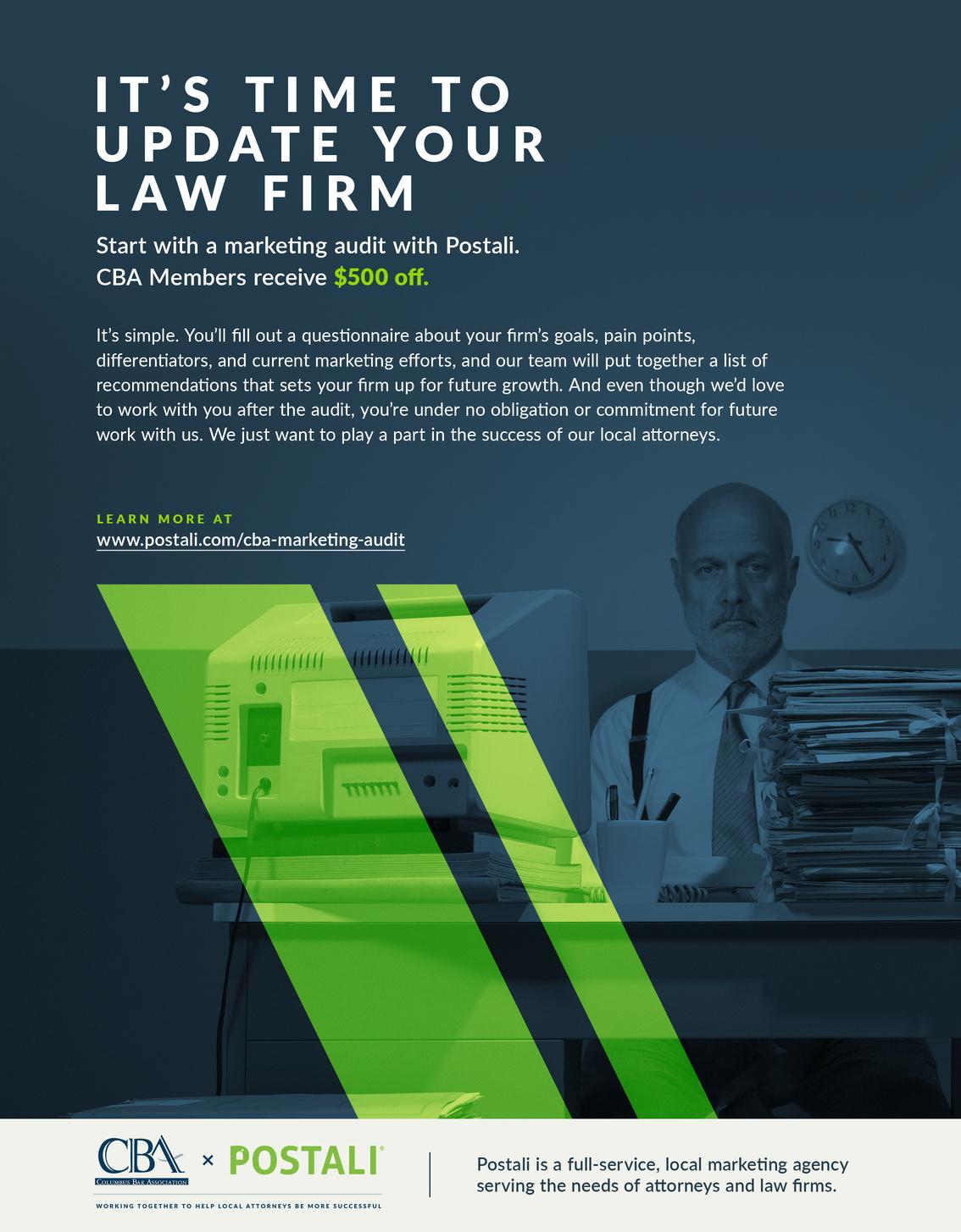

ByAngelaM.Vohsing
This year marked Ohio’s secondannualStatewideParalegal Food Drive, and it was a smashingsuccess!
During the month of February, paralegals from PACO (Paralegal AssociationofCentralOhio),CAP
(Cleveland Association of Paralegals), PANO (Paralegal AssociationofNorthwestOhio)and CPA (Cincinnati Paralegal Association) built on the tradition that began in 2023 of helping the hungry in our communities. Once again,planningbeganinOctober
with each local association developing its own strategies and determining how its donations would be distributed to the local communities. Each association planned and prepared with much excitement and enthusiasm and cametogetherduringregularZoom meetingstodiscussourprogress.
food drives. The results were impressivetosaytheleast!
Duringourplanningsessions,each Statewide Representative shared the plans and ideas of their local associations and offered suggestions to one another about how to be as successful as possible. Eachassociationplanned itsownindividualfooddriveandits own logistics and marketing strategies. One commonality was the use of social media to publicize our food drives and drivecollections.
Weallkickedoffourfooddriveson February 1, 2024 and everyone continued their collections throughout the entire month of February. Manylawfirmsandlegal departments served as collection pointsandhelpedsupportallofour
In Columbus, PACO once again partnered with the Mid-Ohio Food Cooperative, a non-profit serving 20countiescoveringnearly10,000 square miles. We collected both non-perishable food items and monetary donations. Mid-Ohio provided a QR code specific to PACO through which individuals could make financial donations directly through Mid-Ohio’s website. Mid-Ohiothenprovideda report indicating that a total of $95.75 was collected on our behalf. In addition, we partnered with law firms and sustaining members who graciously offered their offices as collection sites for non-perishable donations. In all, 700poundsofnon-perishablefood itemswerecollected.
In northwest Ohio, PANO collected both financial and non-perishable donations that were distributed to the Toledo Food Bank and Chopin Hall, both local non-profits who assist local residents by providing fooditems. TheToledoFoodBank serves residents across eight counties in northwest Ohio. Chopin Hall is a faith-based nonprofitthatprovidesmanyservices, includingitsfoodbanktoresidents inHancockCounty. Theparalegals of PANO collected $700 in donations in addition to the non-perishable food items that weredonated.
organization, the SEM pantry is a client-choice pantry that allows clients to make their own selections from pantry offerings similar to selecting items in the localgrocery.
The Cincinnati Paralegal Association collected 565 pounds of non-perishable food items in addition to cash donations, all of which were donated to the SEM Food Pantry which is a non-profit organization serving residents in Clermont County and eastern HamiltonCounty. Achurch-based
The Cleveland Association of Paralegals collected both financial donationsandnon-perishablefood items,allofwhichweredonatedto theGreaterClevelandFoodBank— a non-profit organization serving residentsoverasix-countyarea.
The 2024 Statewide Paralegal Food Drive was a huge success. Weareallproudthatwewereonce again able to come together to help the hungry in our own communities. Our efforts made a big impact locally, and we know our efforts provided much needed food items for the hungry in our ownneighborhoods.
continue discussing issues impacting paralegals across the state. Perhaps we will have the ability to share continuing education opportunities, find other ways to discuss how to improve the services we provide and how best to move the paralegal professionforward.
In addition to planning our food drives, our meetings gave the opportunity to become better acquainted with colleagues from around Ohio, fostered communication between our local associations and provided opportunities to continue conversations about issues concerning the paralegal professioninourowncommunities andacrossthestate. Wewelcome theseconversationsandplanto
We are looking forward to holding ourstatewidefooddriveagainnext year and can’t wait to see the impact we make in 2025! What a wonderful outreach – paralegals feeding Ohio from the river to thelake!

Angela M. Vohsing


ByDrewPinta
Estateplanningismostoftenthoughtofinthecontextofpassingwealth downtofamilyandfriendsafterone’sdeath.However,manypeoplealso desiretomakealastingimpactbyleavingmoneytocharityintheirwillor trust. Federal law also favors such bequests because they are tax deductible, provided the charity is federally tax-exempt. When making thesebequeststocharities,itiscrucialtounderstandthepotentialissues thatyoumayencounter.
Thereareafewwaysthataperson may leave property to a charity in theirwillortrust.Onemethodisby specific bequest, which occurs when a testator describes a particularassetordollaramountof money that should be given to a certain charity. Specific bequests are straightforward and defined and thus rarely encounter problemswithdistribution.Another method is by residuary bequest, which gives the remainder of a testator’s estate after paying debts,administrationcosts,funeral expenses and distribution of specific bequests. Depending on the amount that comes out of the estate before the residuary bequest, this can be the largest or smallest disposition in the will. While this adds a degree of uncertainty to the amount given to charity, it is a good option for those unsure of the size of their eventualestate. Lastly, a person can make a splitinterest bequest, which is a bequestthatissplitupamonga
charityandotherbeneficiaries.For a split-interest bequest to qualify for the charitable deduction, the form of the bequest must be in strict compliance with the requirements of the IRS. The most common split-interest bequests are to charitable remainder trusts designed to pay income to a noncharitable beneficiary for a specified term. At the end of that period, the charity receives the remainder.Thetrustcanbesetup as a charitable remainder annuity trust (CRAT) or a charitable remainderunitrust(CRUT).
As previously mentioned, when someone passes away and leaves part of their estate to public, charitable or religious organizations— including certain types of trusts and foundations they’ve set up— there’s a tax benefit called a charitable deduction. This deduction helps reduce the estate’s overall tax liability. The amount of this deductionis determinedbythe fair market value of the property or assets given to the charitableorganization.
When lawyers or legal experts are drafting documents that involve charitable bequests, it’s crucial to be cautious and avoid creating overly complex tax calculations that could make things more difficult to understand. The goal is to ensure the process remains straightforwardandtransparentfor everyoneinvolved.
Another important thing to consider is “default apportionment rules.” These rules might make it so that a charitable organization mustpay
part of the estate’s taxes. To prevent this, you can include specificinstructionsinthewillthat clearly say the charity won’t have topayanyoftheestatetaxes.This way, you ensure the charity gets the full benefit of the bequest without being burdened by any taxobligations.
spendmoneyonlegalproceedings —resulting in delays in receiving distribution of the assets. So, it’s important for both the donor and the charity to be clear about the terms and conditions of the bequest to avoid such issues and ensureasmoothprocess.
There are additional challenges that can arise when a charity receivesabequest.Manycharities have established policies to help guide how they handle bequests. Problems can crop up due to the nature of the bequest itself— potentialdisputesandlegalbattles thatmightforcethecharityto
Remember, leaving a legacy to a charityisapowerfulwaytomakea lasting impact on causes you care about deeply. Contact your CPM attorney or any member of our Family Wealth & Estate Planning Grouptoexplorethepossibilitiesof a meaningful charitable bequest to acharityinyourwillortrust.

Pinta
TheWellnessProfessionalDevelopmentNetworkis availabletoallattorneysattheColumbusBar.
Thiscommunityofindividualsisfocusedon helpingBarmembersdiscoverhowtocenter wellnessasapartoftheirsuccessinthelegal profession.


Whetheryouarealawstudent, aseasonedattorney,or somewhereinbetween,allCBA membersarewelcometojoin!
Questions?EmailDonnaSweetatdonna@cbalaw.org.
Thisisaspaceforattorneystodestress andpracticepositivecopingskills. cbalaw.org/Practice-Groups-Networks/Professional-Development-Networks/Wellness-Professional-Development-Network
ByAbigailA.K.Jacobs

Many charitable institutions[1] (hereinafter “charities”) are currentlyfacingfinancialchallenges and are exploring ways to bring in moremoneyaswellaswaystouse the funds they already have. And many of these charities hold charitable funds that have donorimposed restrictions attached. Those who work at charities may believe that all funds belong to the charity and can be used for any legitimate purpose of the charity, butthatisn’tthecase.Donor-
restricted funds must be used for the purpose for which they were given unless the restriction is modified pursuant to the Uniform Prudent Management of Institutional Funds Act, commonly referred to as UPMIFA. (R.C. 1715.51-.59)[2] There are three ways to modify or release a restriction under UPMIFA: through the donor, directly through the attorney general’s charitable law section, or through the appropriatecourt.
The first and often easiest option for modifying a donor-imposed restriction is through the donor.[3] If the donor consents to modifying orreleasingtherestriction,orifthe donor previously consented in the gift agreement, then the restriction canbemodifiedaslongasitisstill used in a way that is consistent withtheoriginalcharitablepurpose.
(R.C.1715.55(A))
Even without donor consent, a charity may still be able to modify orreleasearestrictioncontainedin agiftinstrument.
One way to modify or release a restriction is directly through the attorney general by submitting a notification form to the charitable law section.[4] This can only be done if all of five conditions are met. First, the restriction on the management, investment or purpose of an institutional fund must be unlawful, impracticable, impossible to achieve or wasteful. Second, the fund must have a total value of less than $250,000. Third, the fund must be more than ten years old. Fourth, the charity must continue to use the fund in a manner that is consistent with the original charitable purpose. Fifth, the charity must provide notice to the attorney general at least sixty daysbeforethemodification.
Modifications through the Attorney General’sCharitableLawSection:
Within those sixty days, the attorney general may object to the proposed release or modification. The attorney general may also extend the review period to an additional sixty days but must provide the reason for the extension to the charity. After sixty days,ifnoobjectionorextensionof
timehasbeencommunicatedtothe charity, the charity may proceed with modifying or releasing the fund. During the review period, the attorney general will reach out to the charity with any questions or concerns. If the attorney general objects to the proposed modification,thecharitycanstillgo throughthecourtprocess.
Modificationsbythecourt:Shoulda charityhaveafundthatislessthan tenyearsoldorhasatotalvalueof $250,000 or more, it will need to file an action with the appropriate court and must name the attorney general’scharitablelawsectionasa necessarypartytotheaction.
There are two categories of restrictions that can be modified throughthecourt.First,acourtmay modify a restriction regarding the management or investment of an institutional fund if the restriction has become impracticable or wasteful; if it impairs the management or investment of the fund; or if, because of circumstances not anticipated by the donor, a modification will further the purposes of the fund. That modification shall be made, to the extent practicable, in accordance with the donor’s probable intent. Second, a court may modify the charitable purpose of an institutional fund or a restriction on the use of the fund if thecharitablepurposeorrestriction becomes unlawful, impracticable, impossible to achieve or wasteful. The modification must be consistent with the original charitablepurpose.
The charitable law section invites charities to reach out before an action is filed with the court to discussanyissuesaheadoftime.
Often the parties can reach an agreement and jointly file with the court. This is the best way to preserve charitable resources and gives everyone time to work out any potential roadblocks or issues aheadoftime.
Whether this process plays out in the courts or through the attorney general’s separate administrative process, the attorney general is looking for the same things. First, the attorney general will ask for documentation showing why the modification is being requested (e.g., proof that the current restriction on the fund is impossible,impracticable,unlawful, wasteful, etc.). Second, the attorney general will ask to see documentation showing what the original charitable purpose was. The original gift instrument is the best record. But sometimes, because these funds can be very old, there are instances where the original documentation is no longer available. In these cases, any documentation a charity can provide to show the donor’s intent, how the fund has historically been used, etc., will be helpful. The attorney general’s primary focus is on determining the donor’s intent and making sure that any modification stays as close to that intentaspossible.
What should boards consider when deciding whether to accept restricted gifts? Any time a charity accepts charitable donations, the charity becomes a fiduciary of thoseassetsandmustusethemfor thepurposesetbythedonororthe purpose for which they were solicited. Donors can set restrictionsonthegiftstheygiveto acharity.Charities,too,canrestrict the future use of funds when soliciting donations. Charities have fiduciary duties over all charitable assets, including the duty to abide by any restrictions placed on those assets. Failing to carry out these fiduciary duties can expose the charity to enforcement actions by the attorney general, put the charity’s tax-exempt status at risk and harm the charity’s reputation anddonorrelationships.
the charity, as discussed above, there are other considerations to takeintoaccount.
When accepting restricted donations, there are many things that are helpful for a charity to consider to avoid adverse consequences. In addition to understanding that restricted funds cannotbeunilaterallymodifiedby
First, a charity should determine whether a donor-imposed restriction is consistent with the charity’s mission. Charities should consider whether the restrictions prevent the charity from using the funds in a way that furthers its charitablepurpose.Ifso,thecharity should not accept the assets with those restrictions. For example, if the charity’s purpose is to support young artists in Ohio but the donor is requiring that the gift be used to support young artists in Southern Michigan, the charity will have to determine whether it can accept thegiftandfollowtherestrictionin awaythatisstillconsistentwithits charitable purpose. If not, the charity will need to discuss other options with the donor or refuse thedonation.
Additionally, when a charity solicits donations for a specific charitable purpose,thecharityhasadutyto
use those funds in a way that is consistent with what donors were told.Forexample,ifacharityholds a fundraiser stating that the funds willbeusedtopurchaseabuilding, thecharitymustusethosefundsto purchaseabuildingbecausedonors gave for that purpose. If that purchase becomes impossible or impractical or the charity’s board just changes its mind, the charity must figure out how to legally use the funds—whether that be reachingouttoeachdonortoaskif the funds can be used for a different purpose, involving the attorney general, or involving the courts. To avoid these potential issues, charities should be thoughtful about how they solicit donations. For example, the charity could include language that if the purchase falls through, the board will use the funds for current and futurebuilding-relatedexpenses.
gifts. If a donor proposes to give a charity a vehicle, for example, the charity will need to have a place to store the vehicle and will need to understand state law requirements related to vehicle titles as well as any potential tax consequences. If the charity does not have the capacityordesiretonavigatethese issues, the charity should not accept the donation. In addition to considering the restriction itself, charities should consider the source of the gift. For example, a charitywhosepurposeistosupport lungcancerresearchmaynotwant to accept a donation from a company that produces tobaccoproducts.
Relatedly, charities should consider thetypesofgiftstheyarewillingto accept generally, even if there are norestrictionsplacedonthose
It is important for charities to understand that they can, and sometimes should, reject a donation. It is often helpful for charities to think through these questionsaheadoftimebydrafting a gift acceptance policy that will ensuretheboardhasaplanforthe types of donations and restrictions itiswillingtoaccept.
The attorney general values the criticalrolecharitiesandtheirboard members play in our communities. To assist charities, the attorney general has developed Charitable University, a learning platform that providestoolsonsomeofthemost important elements in leading a charitable organization: board governance, governmental filings, financial operations and fundraising. In addition to exploring Charitable University, the attorney general encourages charities to reach out to discuss any questions or concerns. The charitable law sectioncanbereachedat614-4663181. Questions about UPMIFA or other probate matters can also be sent to CharitableProbate@OhioAGO.gov.
1.(B)“Institution”meansanyofthefollowing:
(1)Aperson,otherthananindividual,organized andoperatedexclusivelyforcharitable purposes;
(2)Agovernmentalorganizationtotheextent thatitholdsfundsexclusivelyforacharitable purpose;
(3)Atrustthathadbothcharitableand noncharitableinterestsandthenoncharitable interestshaveterminated.(R.C.1715.51)
2. It is important to note the distinction between donor-imposed restrictions and institution-imposed restrictions, which are sometimes referred to as quasi-endowments. If an institution chooses to restrict funds for a specific purpose, the institution has the ability to modify or release that restriction atanytime.Theattorneygeneraldoesnotneedto beinvolved.
3.Notethatonlytheactualdonorcanconsenttoa modification—notthedonor’srelatives.
4.Ifacharityhasmultiplefundsitwishestomodify atthesametime,itmaywishtousethecharitable law section’s new spreadsheet process to submit proposedmodifications.



By Susan D. Rector
The Endowment Handbook: The Complete Guide to Building a Resilient Cause. Laura MacDonald, 2024, pp. 290. John Wiley & Sons, Inc., Hoboken,NewJersey.
By 2045, it is estimated older Americans will transfer $84 trillion in personal wealth with $12 trillion of that amount going to nonprofits in charitable bequests. This has been dubbed “The greatest wealth transferinhistory.”Roughly85%of all philanthropic gifts are made by individuals. The nearly 2 million nonprofit organizations in the United States employ roughly 12% of America’s work force and represent5%ofthetotaleconomy.
In light of this, The Endowment Handbook isapracticalguideto
assist nonprofit organizations with establishing an endowment and increasingitssize(andimpact)over time.Thishelpfulresourcecanhelp organizationsdeterminewhetheran endowment is a wise strategy to pursue and provide important lessons learned from those organizations that stumbled or made mistakes along the way before, during and after establishing an endowment. Through anecdotes and data, it helps nonprofit leaders—and those who advise them—make sound decisionsandtakethestepsto
create a resilient future for the organizations that serve the commongood.
Broadly speaking, the book is organized in two parts around two keyresources:moneyandpeople.

Part I focuses on the monetary resource—financial resilience. It discusses what financial resilience is and why it is important. It discusses endowments and distinguishes them from strategic reserves. It also discusses alternatives to consider, including social ventures, strategic partnerships, impact investing and licensing. This Part includes endowment-ready assessments, a summary of endowment-building methods, using a case for support and marketing for the endowment, and policies and practices for managinganendowment.
Part II focuses on people and building enduring relationships with individualdonors.Itdiscusseswho
Thisbookwillbeusefulasatraining guide and resource manual for a nonprofit organization’s developmentstaffanditsvolunteer leadership. Its content would be appropriate for seminars, research and empowering boards and volunteerleadershipengagedin gives to charity generally and who givestoendowmentsandwhodoes not.Itnotestheimportanceofhow individuals give and how they are engaged,withspecificguidancefor securing current and deferred contributions.Chapter9providesa means to measure the success of relationship and endowmentbuildingstrategies.
An Appendix contains reference material, such as where to find additionaldataoncharitablegiving, applicablelaws,diversityresources, endowment policies and management, governance and strategy.Italsocontainsresources, including an endowment readiness test,sampleendowmentactionplan and sample resolutions and languageforasimplebequest.
The audience for the book is nonprofit professional leaders, development professionals, staff members, board members and donors. The topics have broad appeal for both new and experiencedaudiencemembers. fundraising and development efforts to advance the organization’smission.

The well-organized chapters each contain objectives and numerous examples that both illustrate the points being made and bring them home. Helpful side bars throughout the book provide additional illustrations, examples and details of the concepts covered. Each chapter is generously footnoted to primary source materials. The book contains a detailed bibliography andindex.
Author Laura MacDonald has more than 40 years of experience in the fieldofphilanthropy.HerColumbus based firm, Benefactor Group, has clientsacrosstheglobeand
srector@petersonconners.com routinely works with art organizations,museums,healthand humans service organizations, universities, governmental entities and foundations. She has counseled organizations on which I haveservedontheboard,including theColumbusBarFoundationwhen it embarked upon its first capital campaign.Herpragmaticadviceon fundraising and governance matters is always on point and thoughtful.Thebookaddressesthe latest developments in endowment building and cutting edge alternative fundraising vehicles. Seasoned fundraisers and newbies will find actionable advice and practical tips to put into action. Considergiftingcopiesofthisbook to your favorite nonprofit organization or nonprofit leader. Theyandtheirorganizationswillbe strongerforit.
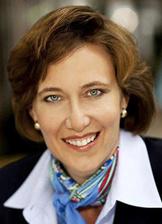
Susan D. Rector
Peterson Conners LLP



BySophiaChang
When the Ohio Justice Bus team heard from a community partner that members of the Central Ohio Laotian community needed legal services,theBus’steamquicklydid what it does best: mobilize volunteerattorneystohittheroad and respond to the legal needs of low-income Ohioans. Within weeks, the team pulled together the Lao Clinic, the first-ever legal clinicthathelpsLaotiancommunity members prepare wills and advancedirectives.
Fully equipped with two meeting spaces and the tools and technology to serve clients anywhere,theOhioJusticeBusisa mobile legal office at the ready. With its extensive network of community partners, the Bus is well-positioned to respond to the specific needs of communities statewide, but it’s the attorney volunteers—likeyou—whomake themagichappen.

Debra Rothstein Clark started volunteering with the Ohio Justice Bus at its monthly clinic at the Clermont County Domestic Relations Court in 2021, but she quickly expanded her service to include the Adams County Courthouse clinic in 2022. In three years of volunteering, Rothstein Clark has assisted more than 100 low-incomeOhioanswithdomestic relationsandjuvenileissues.
“Aslawyers,wehavetheskillsand information to help people who deserve access to justice [to] get there. The Ohio Justice Bus provides me the mechanism to helpasmanypeopleaspossible.”
“Volunteering with the Ohio Justice Bus is incredibly energizing,”shesaid.
While Rothstein Clark is a prolific volunteer, even receiving the John and Ginny Elam Pro Bono Award for her service in 2024, opportunities abound for attorneys seeking shorter commitments. The online calendar is up to date with all scheduled clinics, most of which only require a few hours of commitment.
Interested attorneys can fill out a to connect with a Bus team member who will tailor a volunteer opportunity that suits your interests and
Thanks to the Bus’s well-equipped technology, attorneys in Columbus can volunteer in person for clinics in Central Ohio or virtually for clinicsinruralareas.AnOhio
Justice Bus clinic provides critical legalservicesinPauldingCounty,a county with only 10 private practicing attorneys for a population of 18,676 Ohioans. Imagine the difference you could make for a resident of a rural area who may otherwise never have accesstoanattorney.

Apart from the professional responsibility to engage in pro bono and the satisfaction of helping Ohioans in need, there are many other benefits to volunteering, whether for the Ohio Justice Bus, an Ohio legal aid, or another civil legal services nonprofit. Pro bono volunteers can earnoneCLEcredithourforevery six hours of pro bono work. New and seasoned attorneys gain valuableexperienceinvariedareas oflaw,providingtheopportunityto build your practice. Mentors and training are provided, as is malpractice insurance. Ohio even has special registration statuses forretiredattorneysandcorporate counselforprobonowork.
Attorneys searching for a broad array of volunteer opportunities canvisittheOhioAccesstoJustice Foundation’s statewide pro bono opportunitiesguide,whereyoucan connect with Ohio’s legal aids around the state and specialty legal services providers, including Pro Seniors, Equality Ohio, Advocating Opportunity, and Pro Bono Partnership. There is an opportunity for everyone; from a 30-minute brief advice session to taking a case for full representation, there’s something foryou.
Attorneys who volunteer with the Ohio Justice Bus contribute to its track record of success. Since its launch in the fall of 2019, the Bus has traveled nearly 60,000 miles and helped more than 2,400 Ohioans with civil legal challenges. In 2023 alone, the Bus held 105 brief advice clinics that served hundreds of Ohioans with topics ranging from family law, probate, record sealing and expungement, todriver’slicensereinstatements.
In 2022, the Bus received the American Bar Association’s Solo, Small Firm & General Practice Difference Maker Award foritsefforts.
Many Ohio Justice Bus volunteers,likeLaoClinicvolunteer
Jan Allen Baughman, give back for personalreasons.
“I have a special place in my heart for the Asian community, due primarily to the fact that both of my children are Asian, having beenborninChinaandadoptedby me and my husband,” Allen Baughman said. “Volunteering for theLaoClinicisonewayIfeelIcan pay back, or pay forward, for all I havereceived.”

Sophia Chang, Pro Bono Director Ohio Access to Justice Foundation schang@ohiojusticefoundation.org



ByCallieQuery

CentralOhioansknowthatNationwideChildren’sHospitalprovidesstateof-the-arthealthcareforchildrenregardlessoftheirabilitytopay.Many arealsoawareofthegroundbreakingresearchthehospitalundertakesto treat childhood diseases. Fewer understand the magnitude of the hospital’s commitment to health equity or its investment in innovative programmingdesignedtoimprovethehealthofourcommunity.Lawyers forKidsisonesuchinitiative.
AttorneyswithLawyersforKidsatNationwideChildren’sHospitalpartner withmedicalproviderstoaddresssocialfactorsthatinfluencechildren’s health. Many of the issues that negatively impact health outcomes—like substandard housing, inadequate educational support, lack of access to public benefits and insurance denials for needed medical equipment— have a legal solution. Leveraging lawyers as part of the medical team allows the hospital to impact child health and increase access to justice while improving the lives of Nationwide Children’s patients and theirfamilies.
LawyersforKidsisanexampleofamedicallegalpartnership.According totheNationalCenterofMedicalLegalPartnerships,themovementhas growntoincludemorethan450partnershipsin49statesandtheDistrict ofColumbiasincetheearly1990s.
Lawyers for Kids at Nationwide Children’s Hospital utilizes a model that makesitunique.Inadditiontoavaluedlong-termpartnershipwithLegal Aid of Southeast and Central Ohio and a committed group of pro bono attorneys, Nationwide Children’s Hospital is one of the few hospitals in the nation that employs in-house attorneys to work side by side with families on their legal problems. This hybrid model allows Lawyers for Kidstoprovidearangeoflegalservicesandserveallpatientsregardless of household income or immigration status. In 2023, more than 2,500 Nationwide Children’s patients and their families were referred to the programtospeakwithand/orberepresentedbyaLegalAidattorney,a private attorney volunteering their time, or one of the in-house Lawyers forKidsattorneys.
ThecasesthatLawyersforKidshandlevaryintype,buttheyallimpact thehealth,safety,incomeorstresslevelsofthefamiliesseekingcareat NationwideChildren’sHospital:
• A mother with a newborn in the Neonatal Intensive Care Unit mayhaveconcernsaboutbringingherbabyhometoanapartment withmold.
• A dad may mention during a well-child visit that his family is struggling with food insecurity after their Supplemental Nutrition AssistanceProgrambenefitswereterminated.
•AfamilybringingtheirchildtotheBehavioralHealthPavilionfora mental health evaluation might be worried about what missing schoolwillmeanfortheirchildwhoisalreadystruggling.
•AfamilywhosesonhasbeenapatientofourComplexCareclinic for years may start thinking about whether guardianship would helpthemcontinuetobeinvolvedwithhismedicalcareashis18th birthdayapproaches.
• A mom may disclose domestic violence to a social worker while atthehospitalforherchild’schemotherapy.
PriortoLawyersforKids,medicalproviderswouldbeforcedtonavigate these concerns without the legal expertise that a medical legal partnershipoffers.IhaveheardNationwideChildren’sHospitalclinicians state that they would not want to practice medicine without a program likeLawyersforKids.
Theprogramprovidesawiderangeofservicestothosewithlegalneeds. Attorneys from Legal Aid represent Nationwide Children’s Hospital patients in court when they are facing eviction or need to file for a civil protection order. They also handle administrative hearings on public benefitsanddurablemedicalequipmentdenials.
Probonoattorneys,likethosefromThompsonHine,providebriefadvice to clients on a variety of issues, including landlord-tenant disputes and family-lawquestions.AttorneysfromVorysandNationwideInsurancewill attend Individualized Education Program (IEP) meetings with families whose children might need additional services due to their disabilities. And the in-house Lawyers for Kids attorneys help caretakers with custody and guardianship paperwork, guide those families who must represent themselves in court, and consult with and provide training to NationwideChildren’sclinicians.
Lawyers for Kids will always serve the hospital’s patients by addressing their families’ individual legal issues, but conversations with medical providerssometimesuncoversystemicissuesthatarebestaddressedby lawyers. In 2021, Lawyers for Kids attorneys encountered a problem impactingfamiliesofmedicallycomplexchildrenbeingcaredforathome.
These children often receive Medicaid-funded home health care, which allowstheirparentstokeepthemathomeandoutofthehospital.These familiesreceivednoticesinformingthemthatthenumberofhome-health carehourstheydependedonwerebeingreduced.Despitethechildren’s careneedsnotchanging,thesenoticesstartedtocomemorefrequently — sometimes even every 60 days. Lawyers for Kids and Legal Aid attorneys would appeal, and often overturn, these decisions; still the constant reduction of hours created a hardship for families who already havesomuchtodealwith.
Attorneys from Legal Aid approached the Ohio Department of Medicaid and were able to negotiate a change that requires Medicaid managed care companies to consider the individual needs of each patient, including the stability of their condition, before making any reduction to services.ThisnewruleimpactedNationwideChildren’sHospitalpatients aswellasfamilieswithdisabledchildrenacrossthestateofOhio.
LawyersforKidsrecentlyobtainedgrantfundingtoincreasetheservices that Nationwide Children’s Hospital and Legal Aid attorneys provide to pregnant women and families with children under one year of age. The goal of the grant is to use legal intervention to tackle disparities, particularly for Black pregnant women, in infant mortality rates in FranklinCounty.
Lawyers for Kids has expanded gradually over the last five years as funding and staffing have allowed. In 2025, we will hit a goal that has beenalongtimecoming:Everypatientandtheirfamilyineveryclinicat Nationwide Children’s Hospital who has a civil legal need that could impacttheirhealthwillhaveaccesstolegalassistancethroughLawyers forKids.

Callie Query, Managing Attorney


BySandyAndersonand KathleenMcGarvey

For many in Columbus, even speaking to an attorney— regardless of their practice area— can have a profound impact on theirlife’strajectory.
With good legal advice, someone can gain leverage with their landlord while avoiding a potential eviction. With guidance and coaching, someone can enter custodyproceedingswithaclearer understanding of what the court is lookingforandimprovetheirability to present evidence to support their position. And after just a few minutes of conversation with a lawyer, someone can decide to draftaTransferonDeathaffidavit, saving their children months of stressandcostinthefuture.
Aslawyersandlegalprofessionals, we can take for granted our understanding of the legal system and fail to recognize how it could so easily benefit others. Regardlessofourpracticearea,we have knowledge of litigation procedures and practices, an ability to translate legalese in contracts and an understanding of what a legal summons means. Nonetheless, as our profession continues to become more specialized, we become wary of answering any inquiry outside of our day-to-day focus, afraid we’ll give“badadvice.”
Whileweshouldalwaysbemindful of our professional expectations, weshouldalsounderstandwhatit
takes for a lawyer to be “competent.” Rule 1.1 spells out that “competent representation requires the legal knowledge, skill, thoroughness, and preparation reasonably necessary for the representation.” Comments to the rulehelpusunderstandfurther:
LegalAidofSoutheastandCentral Ohio (Legal Aid) built its Brief Advice clinic model—where lowincomeindividualscanshowup,be screenedforfinancialeligibilityand meet 1:1 with a lawyer—on these factors. Originally begun as the “Interfaith Legal Network” and “Homeless Project,” the clinics were sponsored by CBA and other programsacrossOhio.
A lawyer need not necessarily have special training or prior experience to handle legal problems of atypewithwhichthelawyer isunfamiliar....Perhapsthe most fundamental legal skill consists of determining what kind of legal problems a situation may involve, a skill that necessarily transcends any particular specializedknowledge.
Alongwiththatbaselevelskill,the abilityto“associateorconsultwith a lawyer of established competence in the field in question” factors into whether one canbecompetenttoassist.
Legal Aid monthly clinics meet clients where they are: four local emergency homeless shelters, the VA Ambulatory Care Center, Jewish Family Services, the Bhutanese Community of Central Ohio,Mt.OlivetBaptistChurchand Central Community House. Each one welcomes law students and undergraduates who help with intake and features a different Legal Aid lawyer who coordinates the clinic, ensures that questions are fielded and ensures referrals back to Legal Aid are appropriate. But the real stars of the show are thevolunteerlawyerswhoshowup anddonateone-tothree-hourson aweekdaytomeetwithclients.
In the vast majority of cases, volunteers do not practice in the areas where we see the greatest number of inquiries, like landlordtenant law, family law, consumer debtrelatedissuesandprobate.
So how can this possibly work? Recalling the elements of competence—the ability to “prepare” and access to practicing —experienced lawyers remain essential to the clinics’ success. Every Legal Aid-sponsored clinic includes a Legal Aid lawyer who, even if unable to answer a particularvolunteerquestion,often has access to an arsenal of other Legal Aid lawyers offsite who are willing to respond. There is never a situation in which volunteers are expected to give legal advice if they aren’t comfortable, and lawyers are also trained to be comfortable saying “I don’t know” if they truly cannot answeragivenquestion.
capacity to serve everyone who needs help. While the clients who attendclinicsoftenhavevalidlegal defenses, claims or questions, the sheervolumeofinquiriestheLegal Aid Columbus office receives each day—an average of 100 calls— outpacesitsresources,despitethe work of full-time lawyers, paralegalsandintakespecialists.
Theneedisnotdiminishing.“We’re seeing an increase in the number of people who attend our Columbus advice clinics,” said Mary Gadd, Legal Aid’s Attorney ProBonoCoordinator.“Aclinicthat previously averaged six to eight clients pre-pandemic is now easily seeing 16 to 18 . And while the volunteers do amazing work, the fact is that we need more of them to ensure that the clinics are staffedandsothatwecanreopen someofthesitesthatstillhavenot returnedsincethepandemic.”
Columbus advice clinics continue to be essential simply because LegalAiddoesnothavethe
OneexampleofhowtheColumbus Barhasrespondedtothechallenge isinthe“sponsorship”ofbrief
advice clinics. To date, JP Morgan Chasesponsorsamonthlyclinicat the Bhutanese Community of Central Ohio, sending two to three lawyers and a non-lawyer each month, and Nationwide and Carpenter Lipps partnered to sponsor the new Central Community House clinic, where an average of four volunteer lawyers are needed each month. “Clinic sponsorship is a wonderful way to come together as a firm or legal department and make a difference.Youcanpartnerupand work together to help clients in need,andwhatawonderfulwayto team-build,” said Eric Henricks fromNationwide.
manyyearshasbeeninspiringand gratifying. I would implore any lawyers who have an interest in volunteeringtogoforit.”
Pro bono attorneys can put their skills into practice efficiently, and volunteering connects them directly with their Columbus community. Tyler Ibom of Carpenter Lipps describes his experience: “Volunteering at the adviceclinichasbeenanincredible experience for me this year. Being able to assist a community I went toschoolinandhadlivedinfor
Ifyou,asanindividualoryourfirm, want to join Tyler, Eric and many others and explore how you can volunteeratorsponsoraLegalAid clinic, reach out to the Legal Aid pro bono team at probono@lasco.org.
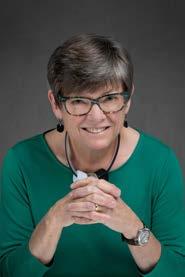
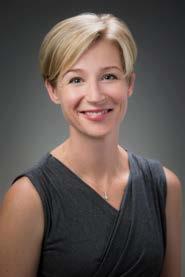
Sandy Anderson, Board Chair
Legal Aid of Southeast and Central Ohio
sandyjoou@gmail.com
Kathleen McGarvey, Executive Director
Legal Aid of Southeast and Central Ohio
kmcgarvey@lasco.org
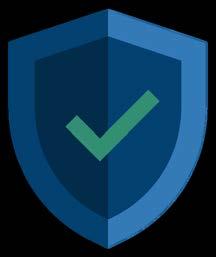


ByKateStrickland

The Ohio Center for Law-Related Education (OCLRE) is a civic education nonprofit that provides Ohio students and teachers with exciting academic programs and resources to engage students in learning about government, law and the importance of active citizenship. OCLRE has been providing hands-on learningopportunitiessince1983,empoweredbythemanyvolunteerswhogive their time to provide authentic learning experiences for students. Today, with participation of teachers and students from more than 70 Ohio counties and more than 1,500 volunteers annually, OCLRE is among the largest state lawrelatededucationprogramsintheUnitedStates.
TheOCLREfoundersstronglybelievedpartnerships between the educational and legal communities could effectively enlighten students about their constitutional rights and responsibilities. Over the years,thisworkhastakenonvariousformsasnew programs have emerged, but volunteers from the legal community have been a constant, grounding presence. Whether it is brainstorming and writing new Mock Trial cases or evaluating student performance during Moot Court oral arguments, volunteersareanintegralpart ofOCLRE.

As OCLRE has evolved, so has our understanding of how to create the best learningexperienceforOhiostudents.Wehavebeenmakingaconcertedeffort to ensure that our volunteer base is representative of our students not only demographically but also in their interests beyond the classroom. The legal community has many rewarding opportunities for students both inside and outside of the courtroom. When students see this diversity reflected in our volunteers,theycanmoreclearlyseethemselvesinthefuturebeingactiveina careertheymayhaveotherwisebeenunawareof.
OCLRE has also heard from volunteers directly about how rewarding it is to supportitsprograms,bothbehindthescenesandbyworkingwithstudentsasa judge for our events. Creating exciting and cutting-edge cases for our Moot Court and Mock Trial programs provides volunteers with a creative outlet that allows them to explore a different side of the law than they interact with on a regularbasis.Itisespeciallyrewardingtoworkonacaseandthenseeitcometo life while serving as a judge. Returning volunteers may have the unique opportunitytoseestudents,andsometimesfamilymembers,growinconfidence and skill over the years from their first performance as a middle schooler or freshmantotheirfinalperformanceasahighschoolsenior.
VolunteeringwithOCLREcantakeonmanyforms.Belowarethevariouswaysto becomeinvolved.
During simulated congressional hearings, students play the role of experts testifying before Congress about our Constitution and critical issues in modern politics. Judges play the role of legislators questioning students to evaluate their knowledge of the topic beingpresented.

Judge – Each hearing has a panel of 2-3 judges to evaluate student performanceandaskfollow-upquestionsaboutanassignedtopic.
Facilitate –Severalfacilitatorsareneededtodirectjudges,keephearings runningontimeandcollectscoresheets. Facilitators must be 18 years or older and must be able to navigate betweenrooms/floorsoftheOhioStatehouse.
MockTrial(
Studentsparticipateinanunscripted,simulated trial based on an original case. High school cases focus on constitutional issues while middle school cases are based on popular middle school level books. Students take on the roles of attorneys, witnesses, bailiffsandtimekeepers.

Judge –Eachtrialisevaluatedbyajudgingpanel(1presidingjudgeand1 or2scoringjudges).
Presiding Judges – Preside over the trial and rule on objections while also evaluating and scoring student performance. Presiding judgesmusthaveaJ.D.;familiaritywithMockTrialortrialadvocacy is preferred.
Scoring Judges – Observe the trial and evaluate student performance. Anyone with a background in the legal community and/orsignificantMockTrialexperiencemayjudge.
Facilitate (High School Only) – Several facilitators are needed to check courtrooms for appropriate set-up, direct judges, keep trials running on timeandcollectscoresheets.
Facilitators must be 18 years or older and must be able to navigate betweenfloorsoftheFranklinCountyCourthouse.
MootCourt(HighSchoolOnly)
Highschoolstudentstakeontheroleofattorneysat the appellate level and submit written briefs and present oral arguments before a panel of judges. ThecasesinvolveU.S.Constitutionalissues.
OralArgument –Eachhearinghasapanelof2-3 judges to question students while also evaluating and scoring student performance in oralarguments.
Briefs –EachMootCourtteamsubmitsonebrief written for either the petitioner or respondent. Evaluators read and score several briefs using a virtual scoresheet. Brief evaluation is done remotelyinadvanceoforalarguments.

Committeesforseveralprogramsmeetinthespring/summertowritethecases JoinaCommittee
students will use. Members of these committees flex their creative muscles by bringingcurrentlegaltopicstolifeforstudents.
This committee consists of volunteers who brainstorm ideas for a new High School Mock Trial case each year. Cases must be based on a constitutionalissueandmustbeappropriateforatrialsetting.
This committee consists of volunteers who brainstorm case ideas based onpopularmiddleschoollevelbooks.Casesmustfocusonactualevents fromthebook,onlyelaboratingondetailsorcharacterswhennecessary.
This committee consists of volunteers who brainstorm ideas for a new High School Moot Court case each year. Cases must be based on a constitutional issue and will follow the appellate process, which will culminate in students presenting oral arguments before the SupremeCourt.
ReturningvolunteersmaysignupbycompletingtheOCLREvolunteerformhere.
IfyouareinterestedinvolunteeringwithOCLREforthefirsttime,orifyouwould likemoreinformation,pleasevisitwww.oclre.org/volunteer.


BySusanChoe

Accesstotheciviljusticesystemis a fundamental principle, but for manyOhioans,navigatingthelegal landscape can feel overwhelming. Complex legal terminology and the difficulty of navigating the civil justicesystemarejustafewofthe
barriersindividualsfacewhenthey encounter legal issues. Since its launch in 2019, Ohio Legal Help (OLH)hasbecomeavitalresource, serving thousands of Ohioans who might otherwise struggle to find thehelptheyneed.
At its core, Ohio Legal Help’s mission is to improve justice and fairness for all Ohioans. By providing plain language legal help information, self-help tools and connections to local legal and community resources, OLH empowers people to make informed decisions and resolve theirlegalproblemsindependently. However, our success depends on the legal expertise contributed by lawyersacrossthestate.Weinvite Ohio’slegalprofessionalstojoinus in this mission by donating their time and expertise to help shape the information on our website, thereby ensuring that everyone in Ohio can access justice regardless ofincomeorcircumstances.
statewide platform to provide free and accurate legal information to Ohio residents. Recognizing the potential of technology to open up access to legal resources, a Steering Committee of diverse stakeholder groups came together in2017tobringOhioLegalHelpto life. Today, OLH continues to be guided by this diverse group of stakeholders through an active Advisory Committee and committed Board, which helps ensure that the organization remains responsive to the legal needsofOhioans.Injustfiveshort years, Ohio Legal Help has served over 3.5 million users across thestate.
Our typical user visits the website on their mobile phone at all hours of the day and night. They are often in a household of at least 3 people, and their household income is less than 200% of the federalpovertylevel.Nearlyhalfof our users are either facing homelessness, experiencing or haveexperiencedviolenceor A Mission Built on Innovation andAccessibility
Ohio Legal Help was born from a pressing need to close the civil justice gap in Ohio. In 2015, the Supreme Court of Ohio’s Task ForceonAccesstoJusticemadea recommendation:developa
abuse, over the age of 60 or aveteran.
At the heart of Ohio Legal Help’s success is our commitment to creating accessible, trustworthy and action-oriented content. Every piece of legal information on our website is carefully crafted by our in-house team and reviewed by a network of legal experts. This ensures that the information is accurate, up-to-date and relevant to Ohio’s current legal landscape. We understand that legal issues can be overwhelming, especially for those unfamiliar with legal jargon or processes, so we focus on using plain language to make even the most complex legal conceptsunderstandable.
For example, someone who is in need of a domestic violence civil protection order can come to the website to fill out the form online, startingandstoppingastheyneed to and saving the information as theygo.
In addition to providing written content, OLH offers a range of interactive tools designed to help usersnavigatetheirlegalissues.
But Ohio Legal Help doesn’t just stop at providing information. We also serve as a bridge to legal assistance by helping users to connect with legal aid and bar association referral services. By removing barriers that prevent many from accessing legal help, OLHplaysacriticalroleinensuring thatOhioanscannavigatethelegal systemtoresolvetheirissues.
OhioLegalHelp’sabilitytoprovide accurate and relevant content dependsontheinvolvementofthe legal community. Lawyers play a pivotalroleinhelpinguskeepour
content updated and relevant, ensuring that it reflects the nuances of Ohio’s evolving legal landscape. By volunteering their expertise, legal professionals can directlyimpactthelivesofOhioans who depend on our resources to resolvetheirlegalissues.
There are several ways that lawyers can give back by contributingtoOhioLegalHelp.As Ohio laws and regulations change, it’s crucial that our legal information remains up-to-date. Lawyers can volunteer to review and update existing content or develop new resources in areas of law where there may be gaps. By doing so, they help ensure that OLH users receive the most accurate and practical advicepossible.
about the resources available to the public. By amplifying our mission, they help ensure that moreOhioansknowaboutthefree legalresourcesattheirdisposal.
Lawyers can also promote Ohio Legal Help within their networks, encouraging more lawyers to get involvedandraisingawareness
A notable example of legal professionals giving back to Ohio LegalHelpisourcollaborationwith ateamofvolunteerlawyerexperts at BroadStreet Partners. Headquartered in Columbus, Ohio, BroadStreet Partners is an insurance brokerage holding company that supports a unique co-ownershipmodelwithover800 agency professionals across the country. Although BroadStreet Partnersisanexpertinthefieldof acquisitions, their volunteer lawyers contributed their expertise inemploymentlawtoourplatform. LawyerContributionsinAction
With their help, Ohio Legal Help wasabletoexpanditsemployment lawcontenttocoverinformation
which can minimize trauma, providemorestabilityandfacilitate connectionswithsiblingsandother familymembers. relevant to both employees and employers. The information now available on our website equips Ohioans with the knowledge they need to understand employment relationships, rights before and during employment and compliance with Ohio law. This partnership exemplifies how legal professionals from various industries can leverage their expertise to benefit the broadercommunity.
Ohio Legal Help also worked with theSupremeCourtofOhioandthe FranklinCountyDomesticRelations and Juvenile Court to create a resource for kinship caregivers. Collaborating closely with magistrates from the Franklin County Domestic Relations and JuvenileCourt,OLHdevelopedthe Kinship Care module, designed to assist those who are caring for children when the parents are unable to do so. Kinship care involves placing kids with grandparents, extended family membersorclosefamilyfriends,
The new Kinship Care module features information about foster care, school enrollment, the juvenile court system, financial juvenile court system, financial supports available to caregivers, the differences between custody, adoption and guardianship and much more. The module also featuresaninteractive“action-plan interview” — a series of questions that, once answered by users, will produce an overview of available benefits and suggested actionsteps.
Ohio is home to about 227,000 children in kinship care, the majority of whom live with grandparents. For the past 10 years, the opioid epidemic has fueled a dramatic increase in the number of children being removed fromthecustodyoftheirparents
and in need of care. Placing kids into kindship care is the least disruptive option with the best results on children’s physical and emotional well-being. By providing a centralized, accessible resource, Ohio Legal Help supports these caregivers with the legal information and tools they need to care for the children and stabilize theirfamilysituation.
BypartneringwithOhioLegalHelp, lawyers and bar associations can make a meaningful difference in thelivesofOhioans.Weinviteyou tojoinusinourmissionandbepart ofthesolutiontoOhio’sciviljustice gap. Together, we can ensure that every Ohioan has the opportunity to access the legal helptheydeserve.
Conclusion
AtOhioLegalHelp,webelievethat everyone should have access to justice,regardlessoftheirfinancial situationorfamiliaritywiththelegal system. Through technology and innovation, we are removing the barriers that prevent Ohioans from understanding their legal options and connecting them with the resources they need to resolve their issues. Our success depends on the contributions of legal professionals who volunteer their expertise to help us keep our contentrelevantandaccurate.
Generous gifts from donors are critical to maintaining our site and developing new features. Your donation will help ensure that everyOhioanhasaccesstojustice and fairness. If you would like to make a donation to Ohio Legal Help,pleasevisitourwebsite.

Susan Choe, Executive Director Ohio Legal Help
schoe@ohiolegalhelp.org


ByHeatherA.Creed
The Law & Leadership Institute (LLI) is a comprehensive academic enrichmentprograminanalyticalthinking,problemsolving,writingskills, leadershipandprofessionalism.LLIusesthegoalofbecomingalawyerto achieve its mission—to motivate and equip students from underserved urban communities to excel in high school, college and beyond and to havethewillandcapacitytolead.
Created in 2008 under the leadership of the late Chief Justice Moyer, LLI’s founders were convinced that the path to greater diversity in the legal and other professions required a much earlier start with students. Fromitsinception,LLIhasfocusedon buildingthefoundation
forsuccessandleadershipinabroadarrayofcareerpaths. Morethan16 years later, not only have 100% of LLI students who completed the program also graduated high school, more than 90% are attending or havegraduatedfromcollege.Wearestartingtoseeincreasingnumbers graduate from law school and practice in Ohio and around the country. Equally important, many choose other vital careers where an understanding of the legal system and leadership skills launched in LLI willcontinuetoserveourstudentsandcommunities. LLIgraduateshave gone on to careers in law, public health, environmental science, educationandmore.

LLIachievestheseoutcomesinColumbusbyconductingafour-orfiveweekSummerInstitutefor9thto12thgradestudentsatTheOhioState University Moritz College of Law. In addition to academic instruction in CriminalLaw,ConstitutionalLaw,professionalism,thecollegeapplication process and writing, students engage with legal professionals and participateinanumberofactivities.Studentactivitiesinclude9thgrade mock trials, 10th grade internships at Columbus legal offices and mock congressional hearings, 11th grade historical research papers on landmark SCOTUS cases, 12th grade moot court competitions, 11th and 12th grade college tours and SAT preparatory courses. Students then move to Capital University Law School during the academic year for additional academic enrichment on Saturdays to continue to develop skills learned during the summer. Throughout 4 years of LLI, students receiveabout700hoursoftuition-freeinstruction.

David Alexander, a retired Partner at the Columbus office of Squire PattonBoggs,shared,“Asapracticingattorneyfor40years…Ihaveseen firsthandtheimpactofthelackofdiversityinournobleprofession.Ihave been proud to serve on LLI’s Board of Directors, as LLI is surely one concrete answer to the question of what each of us can do to help accomplish a generational change in educational opportunity and lifelong career building. LLI is in the business of creating opportunities for youngpeopletomaximizetheirtalents.”
There are many opportunities for the Columbus legal community to engagewithLLIincluding:
Giving a speaker presentation during the Summer Institute (June 16–July18,2025)
Hosting10thgradestudentsfora4-dayacademicinternship(July7–10,2025)
Hosting a group of students for an afternoon field trip during the SummerInstitute
Advising students as they prepare to compete in various activities (mocktrialandmootcourt)
Judging in the local competition at The Ohio State University Moritz CollegeofLaw(theeveningofJuly17th)
Judging in the statewide competition at the Supreme Court of Ohio (Saturday,July19th)
Speaking to Diversity in Leadership Fellows (law students and undergraduate mock trial students who work with the high school students)ataworkshoponaFridayinColumbus

A 2017 alumna from the LLI Columbus site, now a practicing attorney, recently shared, “I cherish the friends I made through this program and the [people] who volunteered their precious time and efforts. I am gratefulfortheprogram'sinsistencethatnotonlywouldwesucceed,but thatLLIwouldsupportusinourendeavors.”
The LLI program would not exist without the volunteers who generously give of their time and expertise to invest in the next generation of leaders.Wearegratefulforthosewhomakethatinvestment!
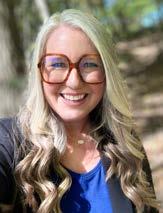


ByKevinL.Greenwood
CourtAppointedSpecialAdvocates (CASA)ofFranklinCountyrecently celebrated its thirty-third anniversary. Over the years, much has changed in the organization but not CASA’s mission to recruit, train,supportandretainvolunteers to serve as guardians ad litem for abused and neglected children in ourcommunity.
TheconceptforCASAoriginatedin 1976 in Seattle, Washington when JudgeDavidSoukuprecruitedlocal volunteerstospeakupforchildren.
As Judge Soukup explained in a 2018 interview with the National CASA/GAL Association for Children, “It terrified me to make decisions about kids when I didn’t haveanybodytherethatwasonly

From there, CASA programs spreadacrossthenationwithmore than1,000localprogramstoday.
CASA of Franklin County was establishedasanon-profitin1991. On July 1, 2020, the agency became a department under the Franklin County Board of Commissioners Office of Justice Policy and Programs, headed by Director Ruchelle Pride. The office team is comprised of five attorneys,fivecasemanagers,
four volunteer engagement professionalsandProgramDirector Kevin Greenwood, who joined CASA in 2017 and oversees the day-to-day operations of theorganization.
The true heart of CASA of Franklin County, however, is its more than 250 community volunteers. CASA volunteers come from all walks of life with varying backgrounds, education and experiences. While retirees have always been a major component of the volunteers’ ranks,demographicshavebegun advocatingforthechild.”
to shift, with a recent survey of Franklin County volunteers showing that slightly more than 50% are employed full-time. This figure includes a number of practicing attorneys who give of their expertise and their time to advocateforCASA’schildren.
After applying to the program, candidatesareinterviewedbystaff and a variety of background checks are conducted. If accepted into the training program, individualstakepartin40hoursof instruction, including online, virtual and in-person classes. Because consistency is important for building resilience in children involved in the child welfare system, CASA volunteers are asked to make a minimum twoyear commitment. They are also requiredtocompleteaminimumof twelve hours of continuing educationeachyear.
assigned a case. Each volunteer visits the child at least once a month and works with a CASA attorney and case manager before preparing a written report for the court. They carry out an objective examination of the situation, including relevant history, environment, relationships and the needs of the child. They identify resources and services for the child and facilitate a collaborative relationship between all parties involved in the case, helping to create an environment where the child’s needs can be met. Volunteersmakerecommendations regarding the child’s best interests and keep track of whether the ordersofthecourtandtheplansof the child protective services agency are carried out. Additionally, volunteers report to the court and collaborate with the child protective services agency when any of the parties do not followthoseordersandplans.
Having completed the training, volunteers are sworn in by a Juvenile Court Magistrate to serve asguardiansadlitemandarethen
The cases served by CASA generally fall into these areas: the most severe cases of abuse and neglect,trafficking,orcases

Services and the Ohio Department of Medicaid, the Ohio CASA/GAL Association in 2023 commissioned an independent evaluation led by the Ohio Colleges of Medicine Government Resource Center (GRC), housed at The Ohio State University. In Franklin County, researchers tracked data which suggests that young people who wereappointedaCASAvolunteer: involving large sibling groups. This hasproventobeahighlyeffective model of advocacy because the limitednumberofcasescarriedby a volunteer (usually one or two) allows them the time needed to addressthesedifficultsituations.In 2023, CASA of Franklin County volunteers worked on 368 cases, serving 767 abused and neglectedchildren.
Partnering with the Ohio DepartmentofJobandFamily
Spent less time in an out-ofhomeplacement
Were less likely to re-enter an out-of-home placement followingdischarge
Weremorelikelytobereunified withfamily
Were more likely to enter a permanentplacement
While providing quality service to children with a trained and passionatevolunteerbase,thereis still room for growth and diversification.Likemostprograms acrosstheUnitedStates,thereare two groups for whom CASA of Franklin County is always in need of volunteers: people of color and men. Of the children CASA served in 2023, 47% were male and 66% were children of color. CASA recognizesthepositiveimpactthat canbemadeonayoungpersonby
having volunteers who look like the children they serve, and we continue to try and expand our recruitment efforts among thesegroups.
Throughout CASA’s history in Franklin County, we have been fortunate to partner with members oftheColumbusBarAssociationto provide safe, loving, permanent homes for abused and neglected children in our community—a fact forwhichwearemostgrateful.We look forward to building upon that foundation in the years ahead. If youwouldliketolearnmoreabout CASA of Franklin County or are interested in learning how you can volunteer to change a child’s story for the better, please visit our websiteorcall614-525-7450.

Kevin L. Greenwood, Program Director


ByMichaelEggiman
A criminal record persists long after a sentence is completed. In many ways, the “punishment” continues well beyond the end of the criminal case. A criminal record can be created and follow people even if they were never actually convicted of a crime. A criminal record can prevent anindividualfromamyriadofopportunitiesinlife,suchasgettingajob, finding housing, adopting a child, possessing firearm rights, obtaining a professional license, opening a business, volunteering at their child’s school,attendingcollegeandcaringforelderlyrelatives.Itisanissuefor manyAmericans,asnearlyone-thirdofadultsintheUnitedStateshavea criminalrecord,andnearlyhalfofallchildrenintheUnitedStateshavea parentwithacriminalrecord.
Over the last three years, the Drug Enforcement and Policy Center (DEPC)atTheOhioStateUniversityMoritzCollegeofLawhasworkedto improveaccesstorecordreliefthroughitsserviceengagementprojects: Opportunity Port and the Ohio Governor’s Expedited Pardon Project (OGEPP).OpportunityPortisanonlineportalthatconnectsOhioanswith criminal records to the legal help they need to complete record sealing and expungement applications. Opportunity Port began serving justiceaffected Franklin County residents in December 2021. It was created in responsetothedifficultymanymembersofthecommunityexperiencein securing housing and employment in Columbus. In January 2024, Opportunity Port expanded to begin assisting individuals with criminal casesanywhereinOhio.
Opportunity Port uses two different service models: one for Franklin County applicants and one for applicants with cases in other parts of Ohio. The models are very similar, as both are designed to be remotebasedanduser-friendly.Theentireapplicationprocess,fromregistration totheappointmentwithanattorney,canbedoneusingasmartphone.
Ineithermodel,anindividualcansignupforOpportunityPortthroughour website: opportunityport.org. On the website, prospective applicants complete an intake survey. From there, applicants are assigned to an attorney who reviews their criminal records to determine their eligibility for record sealing or expungement. After completing this review, the attorneysendstheapplicantaweblinktoscheduleaphoneappointment, during which the attorney will review with the applicant the applicant’s eligibility, the filing process, the sealing/expungement process and what thehearingwillentail.Iftheapplicanthasanycasesineligibleforrecord sealing or expungement, the attorney will review what other remedies may be available such as a Certificate of Qualification for Employment (CQE),aCertificateofQualificationforHousing(CQH)orapardon.
TheFranklinCountyandstatewidemodelsdifferfromhere.
IftheapplicanthasacaseintheFranklinCountyCourtofCommonPleas and/or the Franklin County Municipal Court, and is a Franklin County resident,OpportunityPortwillpreparetheapplication,havetheapplicant e-signtheapplicationandthenfileitonbehalfoftheapplicantdirectlyto the court. The assigned attorney is not the attorney of record; rather, Opportunity Port files the application as if the applicant filed it pro se. OpportunityPortalsopaysthefilingfeeforapplicationstoeitherFranklin County court through a grant from Columbus City Council. Under R.C. 2953.32, courts are allowed to charge $50-$100 per application. Applicants are allowed to put any number of cases on a single application. Under R.C. 2953.33, courts cannot charge for the sealing/expungementofadismissed,notguilty,nobillorpardonedcase.
Ifoneormoreoftheapplicant’scasesisinanOhiocourtoutsideofthose twoFranklinCountycourts,theattorneystillpreparestheapplication(s); however,theattorneyemailstheapplicationsdirectlytotheapplicantto sign and file pro se. The attorney provides filing instructions for each courtandapplication.Theapplicantisrequiredtopaythefilingfee(s)or fileanAffidavitofIndigencywiththeapplication(s).
Ineithermodel,applicantsmustattendthesealing/expungementhearing and represent themselves unless they obtain counsel outside of Opportunity Port. There are four organizations that service individuals undertheFranklinCountymodel:LegalAidofSoutheastandCentralOhio (LASCO), Equality Ohio, the Franklin County Municipal Court Self Help Center, and DEPC. DEPC is the sole service provider for the statewide servicemodel.
While the primary goal of Opportunity Port is to provide legal help for record sealing and expungement applications, one of DEPC’s secondary goals is to help educate and be a resource for lawyers, judges, prosecutorsandclerksaboutrecordsealingandexpungementprocesses and laws in Ohio. Due to the nuisances of and frequent changes to the law in Ohio, an eligibility determination and the application process can be complicated to both attorneys and non-attorneys. R.C. 2953.32 and R.C.2953.33primarilycoverthesealing/expungementofconvictionsand dropped charges, respectively. However, there are additional statutes that provide avenues for the expungement of other types of records, suchascertainfirearmconvictions(R.C.2953.35),convictionsstemming from experiencing human trafficking (R.C. 2953.36) and certain traffic convictions(R.C.2953.61).
RecordrelieflawisalsoveryfluidinOhio.Between2012and2024,eight lawchangeseithermodifiedorprovidednewavenuesforrecordrelief.In 2023, the Ohio General Assembly passed and codified significant changestotherecordreliefprocess.Previously,courtswererequiredto lookatanapplicant’sentirecriminalrecordhistorytodeterminewhether theywerean“eligibleoffender”or“ineligibleoffender.”Thisanalysiswas overhauledinfavoroflookingateachcaseindividuallyinmostsituations. Moreover,expungementbecameanoptioninadditiontorecordsealing. Getting a case sealed removes it from public view, but it is still maintained by the court and will still appear on background checks for certain state-issued licenses. However, the case should not appear on generalbackgroundchecksforhousing,employment,credit,etc.Having the case expunged primarily destroys the record and removes it from appearing in almost any place with a few, narrow exceptions. A case’s eligibilityhingesonseveralfactors,suchasfinancialobligationsfromthe case, how much time has passed, the degree of the conviction (thirddegreefelony,first-degreemisdemeanor,etc.)andtheageofanyvictim
atthetimeoftheoffense.Becauseofthefrequentlawchanges,oneof OpportunityPort’sgoalsistokeeptheactorsintherecordreliefprocess andlegalsystemupdatedandinformedsothattheycanbestserve their communities.
Opportunity Port has been a tremendous success so far. As of October 31, 2024, Opportunity Port has completed 1,930 applications for 1,100 individuals. So far, we have prepared applications for 66 of the 88 Ohio common pleas courts and 125 of the 164 Ohio municipal and countycourts.
IfyouknowsomeonewhoisanOhioresidentandhasacriminalrecordin Ohio,pleasefeelfreetoreferthemtoourwebsite:opportunityport.org.If youhaveanyquestionsaboutrecordsealingandexpungementlawsand processes,pleasefeelcomfortablecontactingusdirectly.




When adults make the decision to leave a relationship, the impact on theirchildrencanbemitigatedwith proper support. Lemonade Brigade, a group for K-5 children whose family structure has been changed through separation and divorce, has helped many children over theyears.
ByFeliceKassoyandSarahMoyer
After5thgraderParkerlearnedthat her parents were going to change hervisitationschedule,shecameto Lemonade Brigade feeling angry and frustrated. “It is already challenging to go back and forth between two houses, but a new schedule just isn’t fair,” she said to the group. She continued, “This decision would make their liveseasier,butwillmakemylife
harder. I didn’t ask for this divorce, so why am I the one that has tosuffer?”

As the other children in the group listened with empathy, they began tobrainstormideasforParker.After numerous suggestions, they decidedtohelpParkerwritealetter to her parents explaining why the change would be so challenging forher.
Aftertheletterwasfinished,Parker decided to make two copies, leaving one at each house during the upcoming week. She enthusiastically shared with the group the next time they got togetherthat,muchtohersurprise, her parents decided not to change her schedule. Parker said, “All of you in Lemonade Brigade gave me the courage to share my feelings with my parents and be a selfadvocate! I couldn’t have done this onmyown.”
After many years as a school counselor, Dr. Felice Kassoy observed several elementary-aged students experiencing challenges related to the separation, divorce and blending of new families. In response to these needs, Dr. Kassoy created the Lemonade Brigade over 20 years ago to support these children. Due to the growing need of families and the success of the group, Dr. Kassoy recruited Sarah Moyer several years ago to join her in facilitating Lemonade Brigade; they are now providing this opportunity to the widercommunity.
After years of running Lemonade Brigade, Sarah and Felice found many benefits from this group for the hundreds of children who participated.LemonadeBrigade:

Provides a safe and supportive place where the children know they are not alone in their experiences— thehallmarkofgroupwork!


Helps children identify their emotions by increasing their feeling word vocabulary and developmentally appropriate language to describe theirexperiences.

Encourages children to learn and use positive coping skills to manage the *big feelings* theymaybehaving.

Teaches the concept of self-advocacy and how to use these skills at home andschool.

Promotes the idea of selfcare and emphasizes that asking for help is a strength when navigating their family’s changingstructure.

Empowers children to cocreatethegroupcontentwith SarahandFelicetomaximize their experience and give themasenseofownership.
Felice Kassoy retired in 2022 after 43 years in both public and independent K-12 schools. As an educatorandcounselor,Dr.Kassoy focusedonherstudents’socialand emotional development and the strengthoftheirfamilies,alongwith the well-being of her colleagues. Doingthisimportantworkthrougha lensofsocialjustice,Dr.Kassoyisa fierce advocate for creating equitable and inclusive schools for all.Dr.Kassoyreturnedtoheralma mater as an adjunct professor in 2013 and is currently a clinical professor at Capital University in Bexley,Ohio.WhenDr.Kassoyisn’t passionatelysharingherknowledge and experience with children and other educators, she is outdoors enjoying nature with her children andgrandchildren.
Sarah Moyer is a Licensed School Counselor. She has worked with children in a variety of settings, including schools, homes, clinics and hospitals. She is passionate aboutsupportingthesocialand
emotional development of young children, particularly as they go through challenging times. She is currently studying to become a Licensed Professional Counselor. Sarah spends her spare time with her newborn, Penelope (PJ), her husbandandtheirtwodogs.
Please visit Ketner Counseling Group to find the flyer and registration form or reach out to Felice at felice.kassoy@gmail.com or Sarah at SarahLGMoyer@gmail.com.

The next Lemonade Brigade group will begin on January 26, 2025 and continue for six consecutive Sundays. To maximize the benefit forthechildren,thegroupislimited to10participants,soweencourage earlysignup.
Lemonade Brigade has found great success with the children it has reached. With your help we can reach even more elementary-age students who could benefit fromsupportduringtheir family’s transition.





ByCharlesA.Schneiderand
KristenB.Lippert
Closeyoureyesandthinkbacktoyourfirstdayoflawschool...imagine thesoundofbustlingstudents,thesmellofnewnotebooksandthesight ofnewfacessurroundingyou.Youprobablyfeltanxiousaboutbeingcold called because you didn’t know if you found the correct rule/holding of the case or didn’t want to mispronounce that key Latin word or phrase. You probably felt overwhelmed by all the unknowns, like do professors reallyexpectustoreadthismuch,whatisthelawschoolcurve,howdoI getaninternshipandisitpaid,whatisatort?
Today, thousands of individuals appear pro se in all courts across this country and are likely more overwhelmed, uninformed and anxious than you were on your first day of law school. In the last decade, there has been a steady increase of people representing themselves in criminal, domestic,andcivilcourts.TheSupremeCourtofOhiorecentlyreported thatapproximately47%ofthecasesfiledinitscourtwerebroughtbya prose petitionereachyearsince2019.
The 2015 Access to Justice Task Force, which had been created by the SupremeCourtofOhio,identifiedthreemainbarriers—funding,structural and cultural—to litigants’ access to the civil justice system in Ohio. The Task Force recommended various methods to address the gaps in access, like standardized forms and instructions, funding options, selfhelpcentersandmore. Sinceitscreationin2016,theFranklinCountyMunicipalCourt’sSelfHelp Center (the “Center”) has provided legal assistance to more than 100,000individuals inneedofsupportand/orguidanceinnavigatingthe judicial process. Last year the Center improved access to the judicial system for more than 29,000 people (twice the number of people it servedin2022).CommonissuesaddressedattheCenterincludesealing and expungement of criminal records and landlord/tenant disputes. Last year the Center hosted its 4th annual record sealing event and offered recordsealingassistancetoapproximately750people.


TheSelfHelpCenteroffers free options counseling;thismeansthestaff assists all visitors (regardless of their citizenship status) by providing information about their rights and legal options without offering legal advice. The Center’s philosophy, according to Director Robert Southers, is “If I can’t serve you, I’ll point you in the direction of someonewhocan!”

The Center works closely with other local organizations and refers complex matters to organizations that provide legal advice and financial assistance to those who cannot afford an attorney, like Legal Aid. Director Southers’ analogy clarifies the difference in the scope of services being provided. The Center, like minute-clinics, significantly improves an individual’s ability to access legal professionals and informationrelatedtotheirspecificneeds.
The Center continues to serve as a pioneering access-to-justice model, with its staff supporting and guiding other jurisdictions in opening selfrepresented litigant services across the country. In 2022, the Center began promoting and facilitating mediation services through its Dispute Resolution Department, and the Center launched its Eviction Prevention Coordinatorpositionin2023,whichhasalreadybeencitedasanational bestpractice.
The Self Help Center will continue to serve the community and improve access to justice in Central Ohio by mitigating structural and financialbarriersandbyfillingtheknowledgeandavailabilitygapsfor pro se litigants.




ByChrisLardiere
In just a couple of hours, pro bono attorneys have the power to give low-income seniors an invaluable gift: the peace of mind that comes from knowing their wishes are in writing,theirdignityissafeguarded and their loved ones won’t bear an extra burden in times of need. This brief but impactful time commitment allows lawyers to make a lasting difference, ensuring that clients/members of vulnerable populationscanfacethefuturewith confidenceandcalm.
I’ve been a lawyer for 41 years and havebeenprivilegedtoownasmall firmthatprovideshighqualitylegal services in the areas of personal injury, divorce and family law, business, wills, trusts and estates, traffic and criminal. I am fortunate tohavepartnersthatarecommitted togivingbacktothecommunity.In the time I’m not spending at the firm, or with my wonderful family, I’ve also been very involved in the Hilliard community, earning the 2015 Volunteer of the Year with Lend a Hand Hilliard, Northwest Football League Coaches Hall of Fame, and participating in more boards and sports leagues than I can count. It has been an honor to connect with my community and support our youth. I am sure I cannot remember the name of everykidIcoachedoreveryclientI haverepresentedinthose41years.
who was looking for guidance on how to plan for her next stage of life. And also Mildred from Gallipolis, Elsie from Reynoldsburg, Mark from New Philadelphia, and Francis from Newcomerstown. What all of these people have in common with each other—and another 100+ senior citizens throughout Central and Southeastern Ohio—is that I met them through the Seniors Referral Project, a pro bono program run throughLegalAidofSoutheastand CentralOhio(LegalAid).
But I do remember Romona, a widow from Portsmouth who reached out to Legal Aid because she wanted to make sure that her wishes would be followed if she experienced a medical emergency. There’salsoBarbarafromGahanna
LegalAidrefersoutprobonocases for low-income seniors and veterans seeking simple wills, advance directives and transfer on death affidavits. Clients are first screened to ensure that they don’t have complex asset issues or the means to pay for private counsel, and Legal Aid staff also conduct phone interviews to ensure clients havethenecessaryinformationand decisionsmadeinordertoproceed. All of the work Legal Aid does ensuresthatIcanspendmytimeas avolunteerlawyerfocusedon
preparing and explaining the necessary documents that will address clients’ wishes and make their next phase of life proceed as theyintend.
While some volunteers meet with clients to execute the documents aswell,I’veelectedtoparticipatein the virtual version of the project, which enables me to upload the documentsandhaveLegalAidmail them to the clients with detailed instructions on execution and next steps.ThismeansIcantakeahigh volumeofreferralsandusemytime efficiently.Italsoallowsmetohelp clients throughout Legal Aid’s 36county service area, particularly those living in rural counties where the number of active lawyers is steadily decreasing each year, and where local pro bono help is sometimesnolongerpossible.
tothelivesoftheirprobonoclients. All my clients have been so refreshing to deal with. Many of these individuals are in tough situations but maintain their dignity andtheirsenseofhumor.Ihadthis great lady ask me to call her back when things were “more private.” Shelatersharedthatshelivedwith her kids but really didn’t like them and wanted to know if she really had to leave them anything in her will. I spent almost two hours listening to her stories. We agreed thathavinggrandkidsmadedealing with your own kids worth it. She ended up dividing everything equally for the kids. But the stories and discussions to get there was a tripworthtaking.
I think it’s common for many of us to think of litigation when we consider pro bono, and the Seniors Referral Project is a good example ofhowlawyerscandotransactional workandstillcontributeprofoundly
When I first reached out about three years ago to Legal Aid about volunteering, I wasn’t quite sure whatIwantedtodo,andIcertainly didn’tforeseethatI’dbedoingwhat I am doing now. Until that point, I mostly interacted with Legal Aid lawyers as opposing counsel on eviction cases or at bar meetings, so I was curious to see what they mightsuggest.Wehadafewfalse
starts on finding the right project that would maximize my availability and meet a real need on their end, and we eventually landed on the Seniors Referral Project. The training, guidance and feedback that Legal Aid provides—through one of their lawyers Paul Bryson and their pro bono team paralegal Candice Wooten—has been essentialtomysuccess.
and have been helping Legal Aid’s pro bono team strategize how to better promote their work with this audience.
Now that I’m trained and feel comfortable with the subject matter,eachcaseIhandletakesme less than 2 hours. At this stage of life,I’mabletokeepaconstantflow ofreferralsgoing,whichmeansI’ve been able to serve more than 100 clients in the two years I‘ve been doing this work. But even if I still hadafullcaseload,Icouldstillfitin these cases with some regularity, which I think is attractive for other lawyers who often can’t imagine finding the time to volunteer. I also have a personal mission to find ways to connect with my fellow small to mid-sized firm lawyers throughouttheCentralOhioregion
IknowthatI’mabletodevotemore ofmytimethantheaveragelawyer, butIalsoknowthatLegalAidwould bethrilledtohearfromanyonewho can devote just a few hours per monthoryeartotheirmission.And if work with seniors and estate planningdoesn’tresonatewithyou, I assure you they will find the right opportunity for you, as they did forme.
This is important. It’s important because we know that adequate legal representation is essential. I see the divide growing instead of shrinking as it relates to equal and fair access to the justice system. Today, the ability to afford legal representationcarriestheday.Civil legalaidlevelstheplayingfieldand preventsthewheelsofjusticefrom becomingagristmillfortherights

of those not able to afford lawyers or obtain fair and equal access to the system. If legal aid were not available, the vulnerable people of our population would get their rights trampled. I urge those reading this to reach out to Legal Aid because I personally witness how hard their staff works to address the justice gap in our community,andIknowtheycannot dothisworkalone.
The Seniors Referral Project gives clients peace of mind and the dignity that follows. Helping these clients is more than just filling out simple forms. It is understanding that they are coming to grips with their own mortality and providing them with access to the tools that will enable them to maintain their dignity. It is more than access to justice. It is access to what we all are entitled to — basic humandignity.


